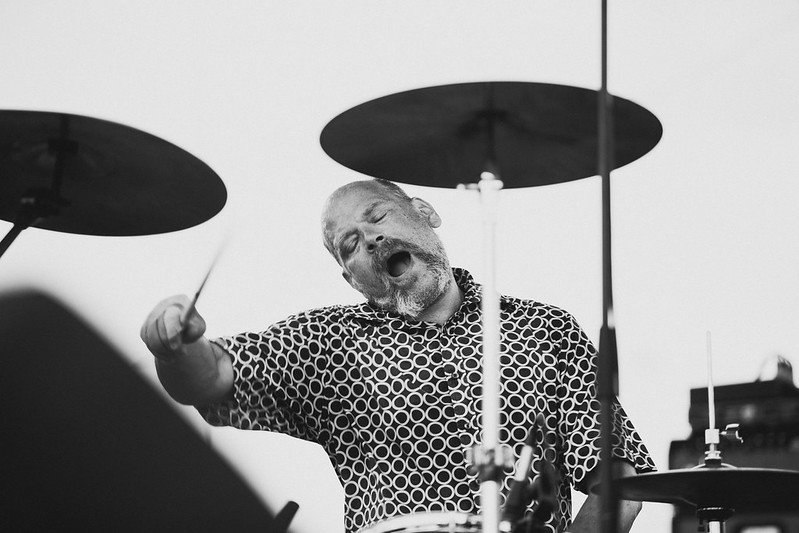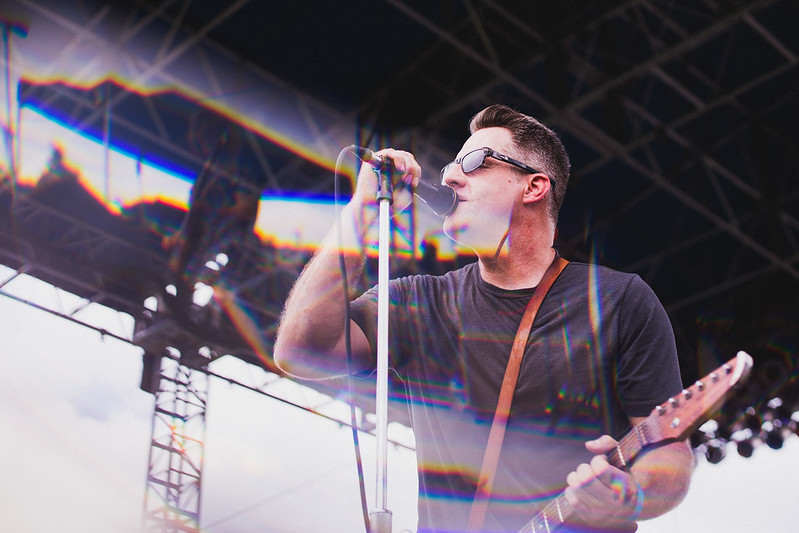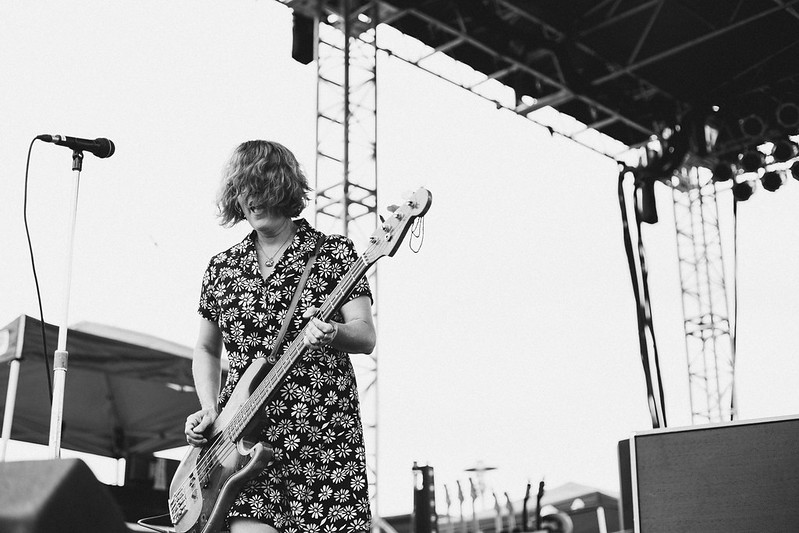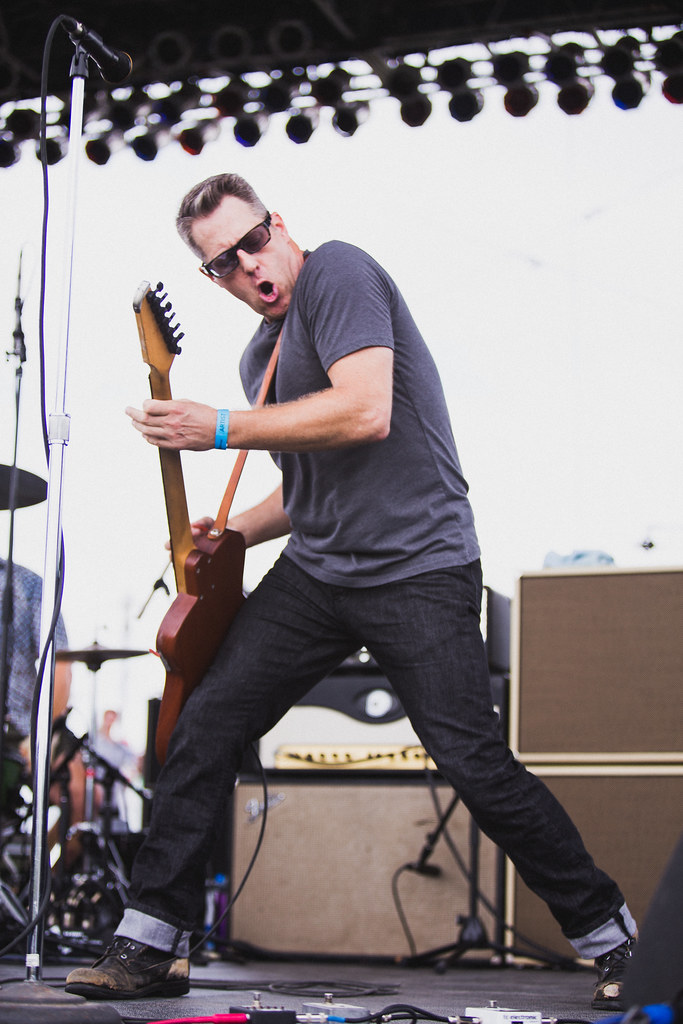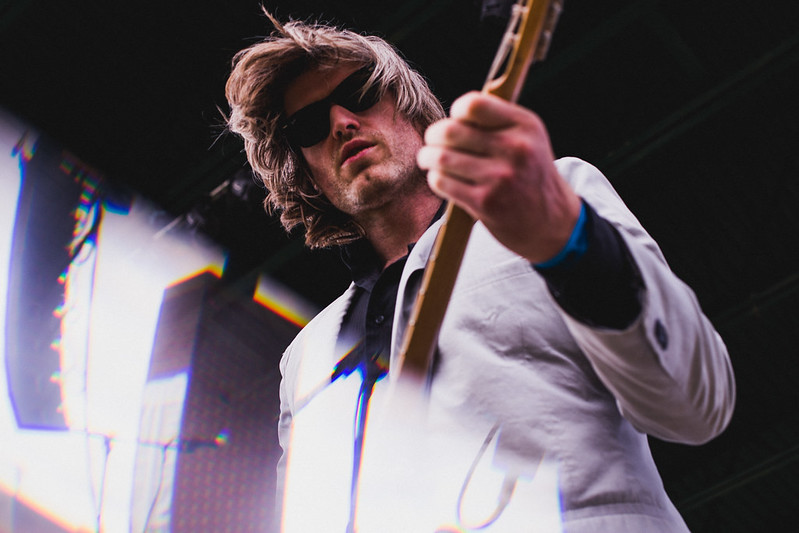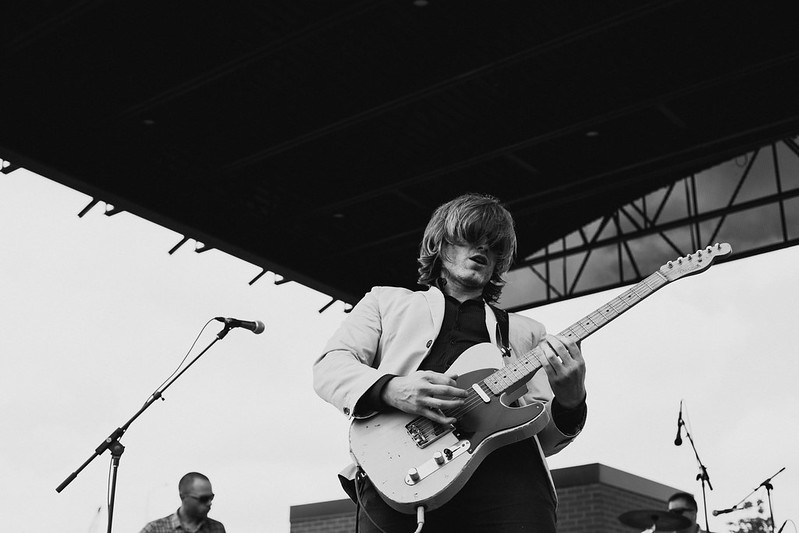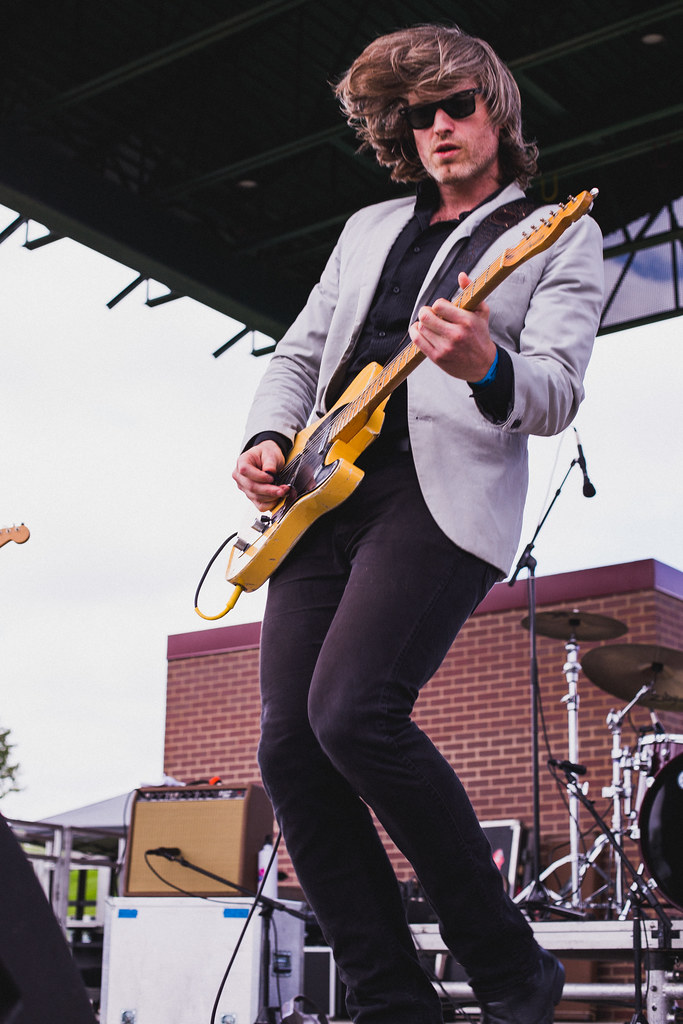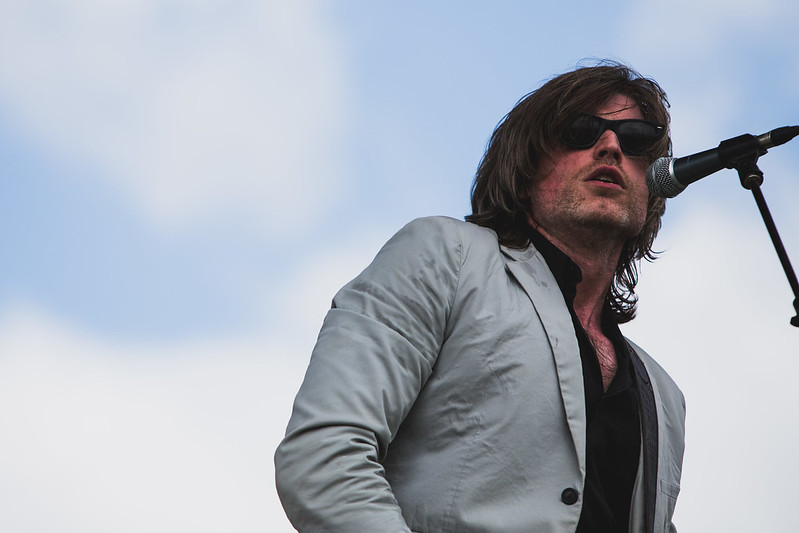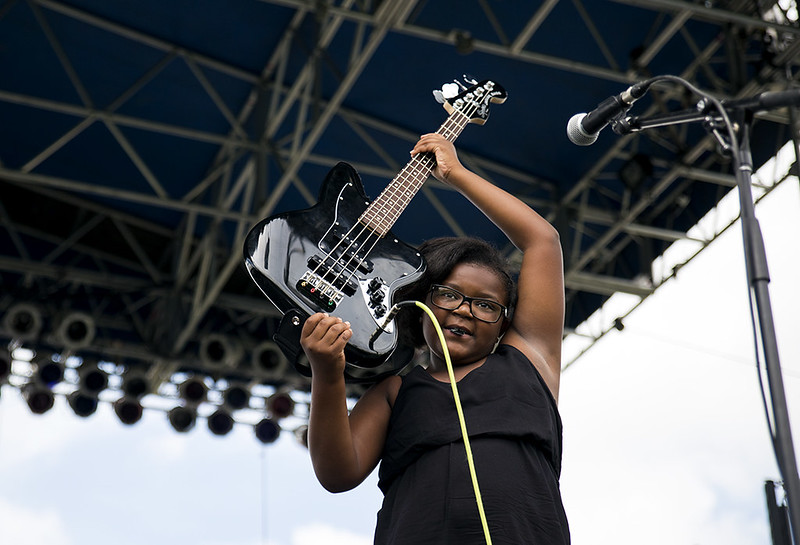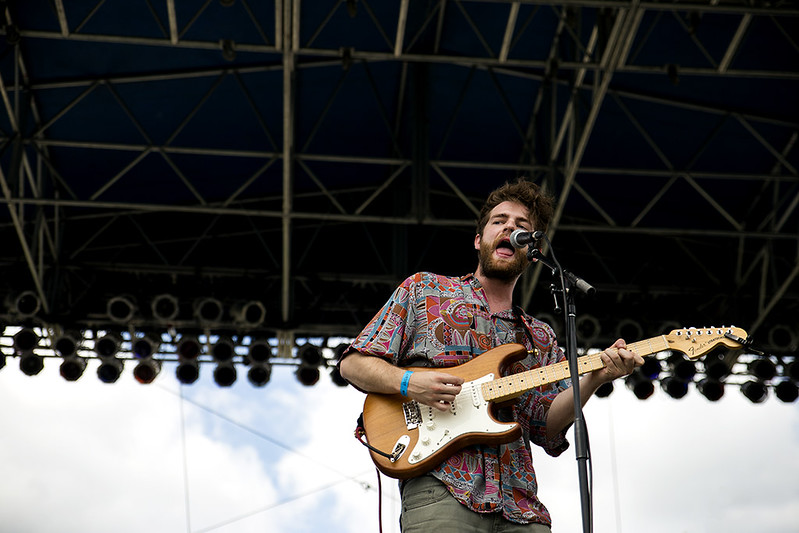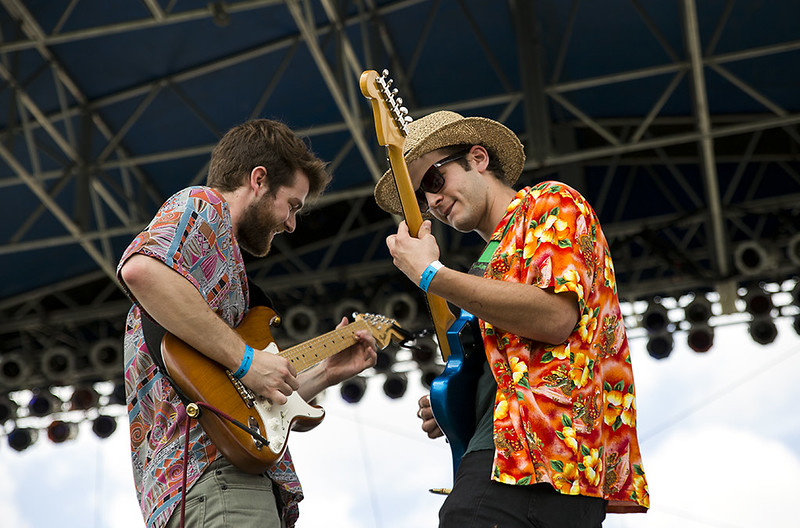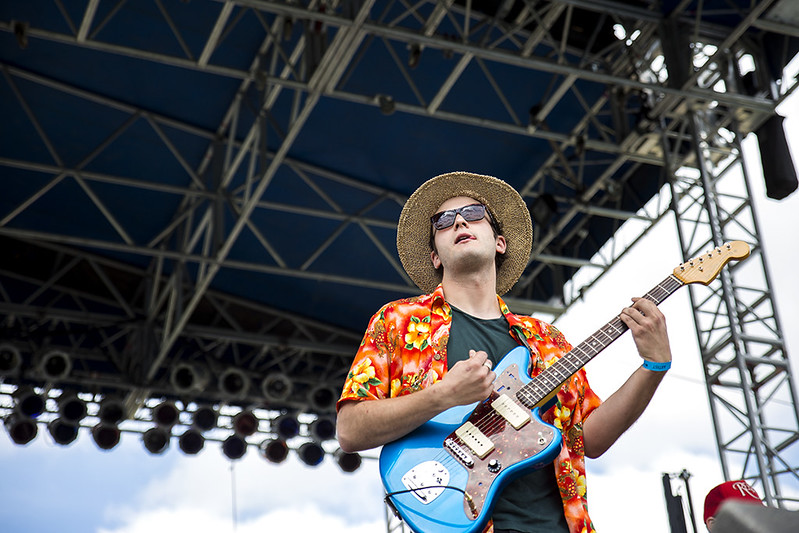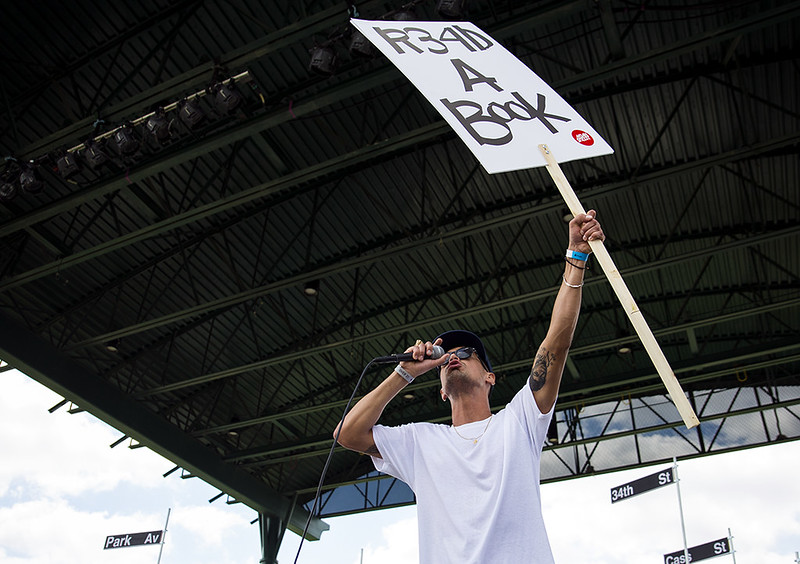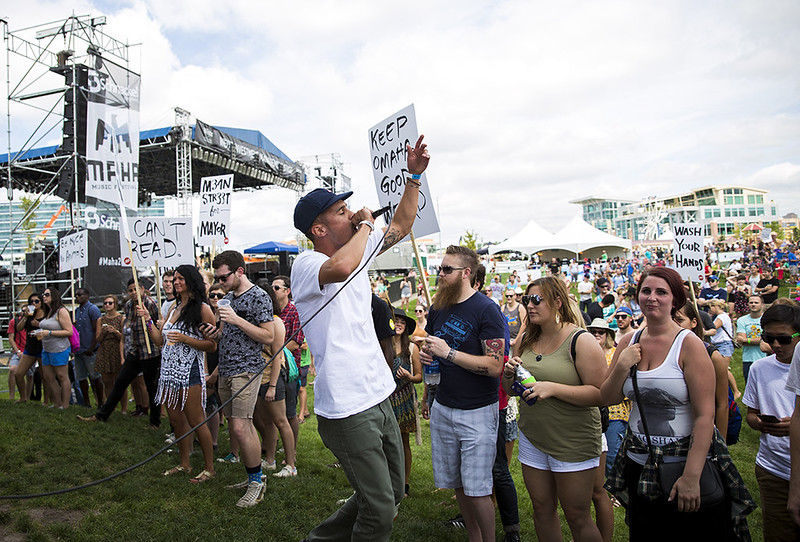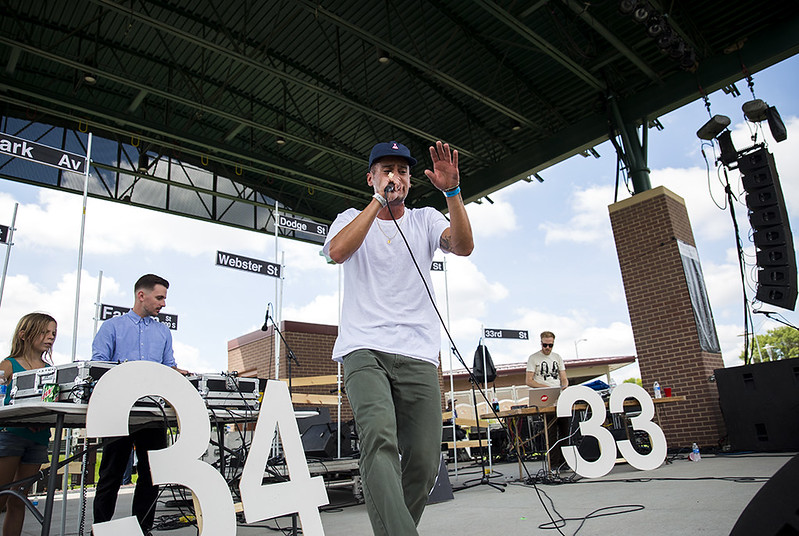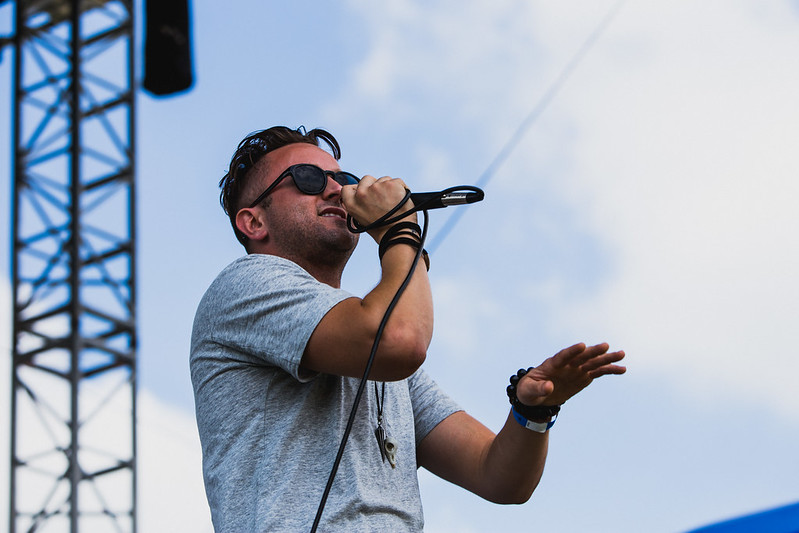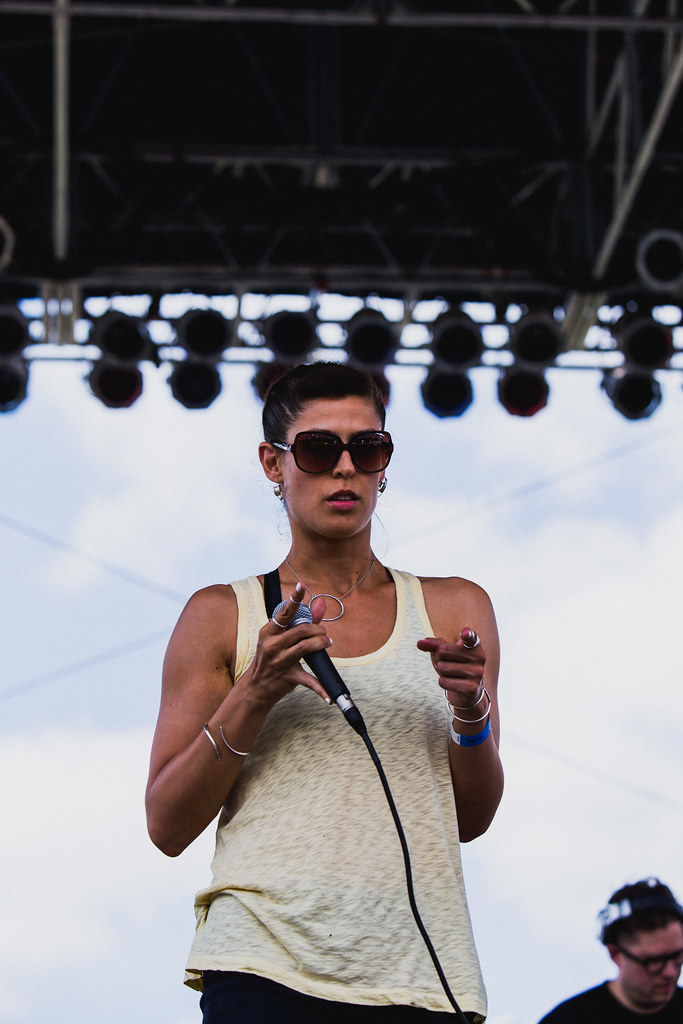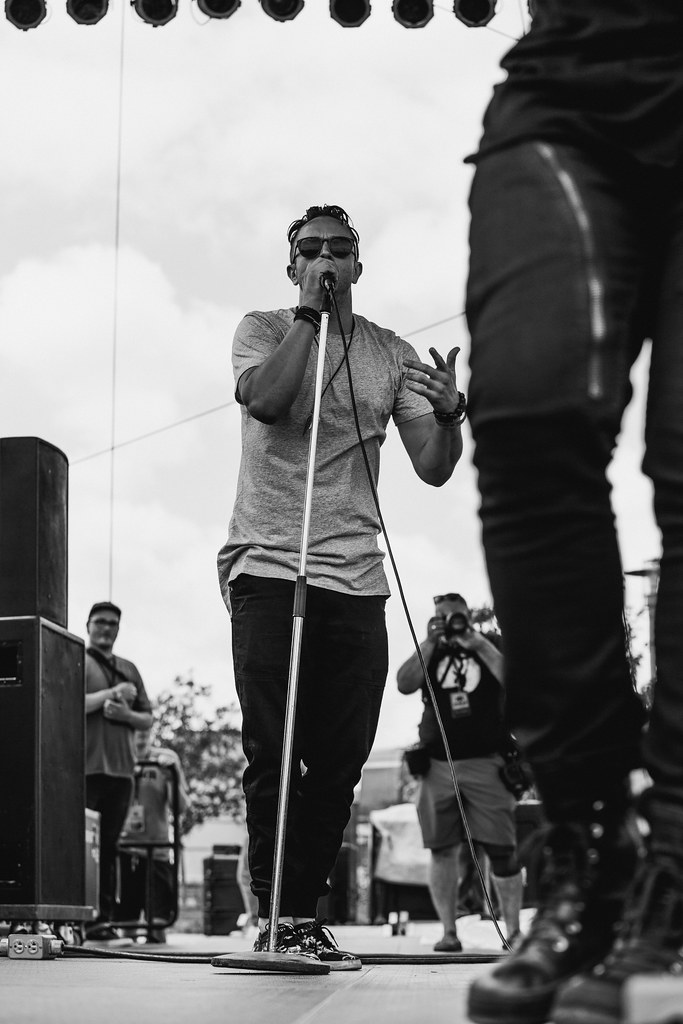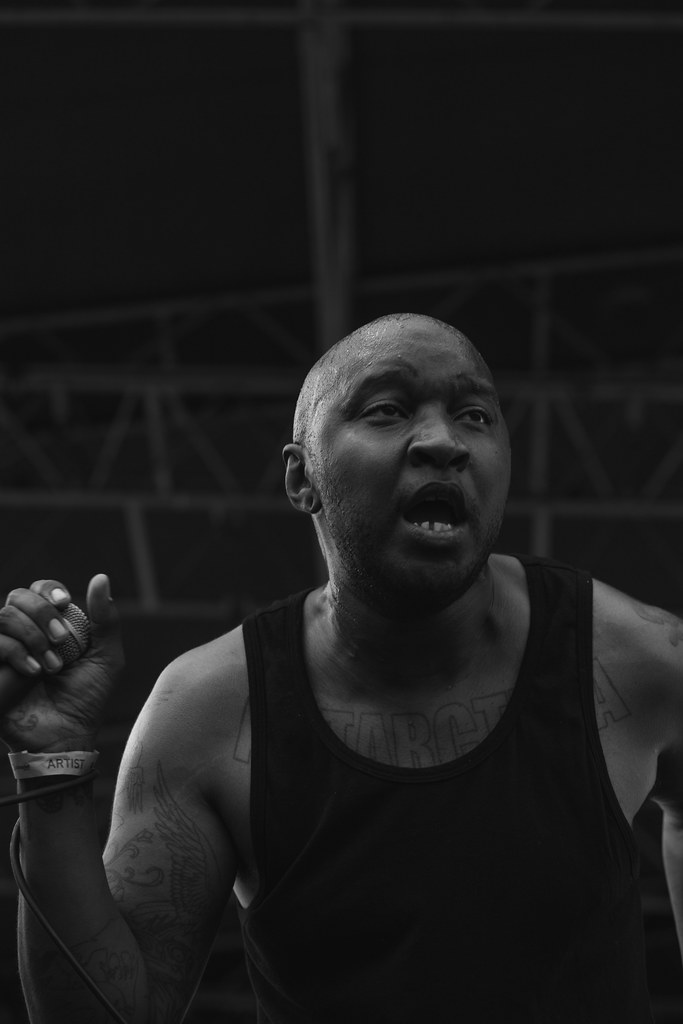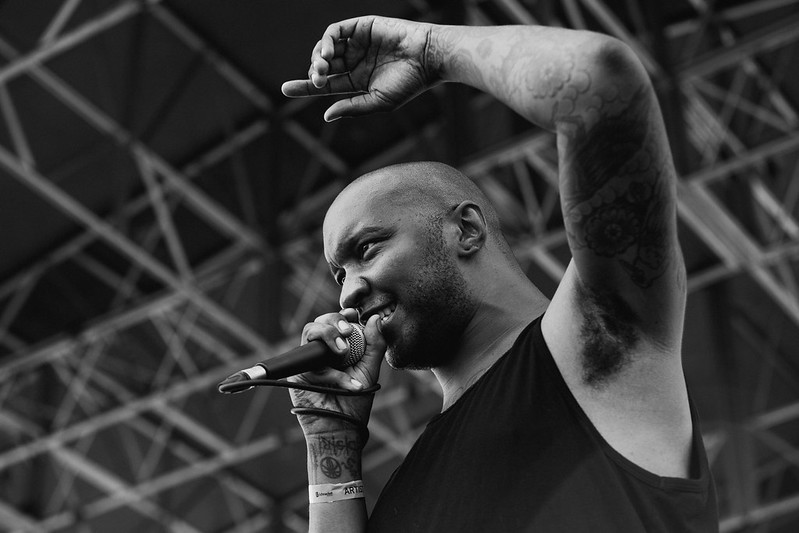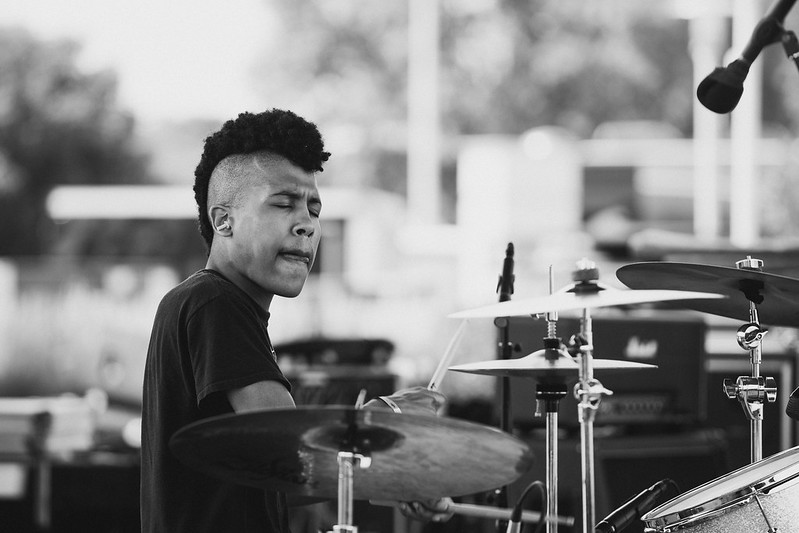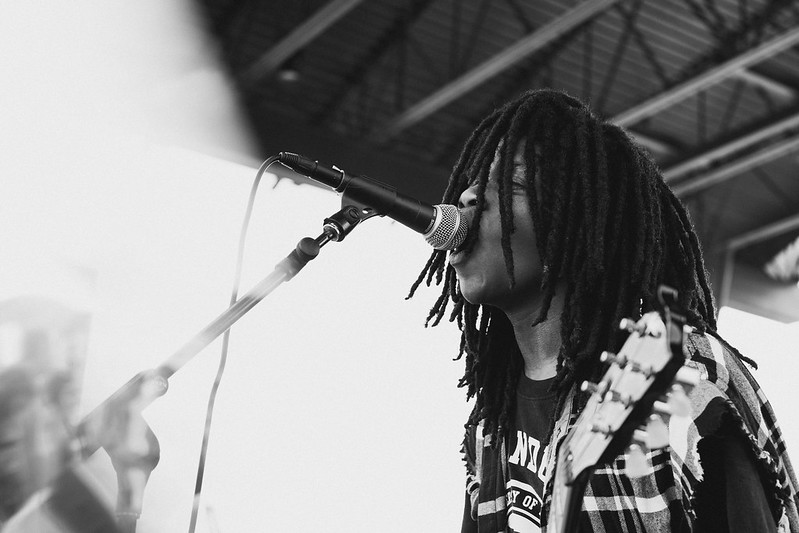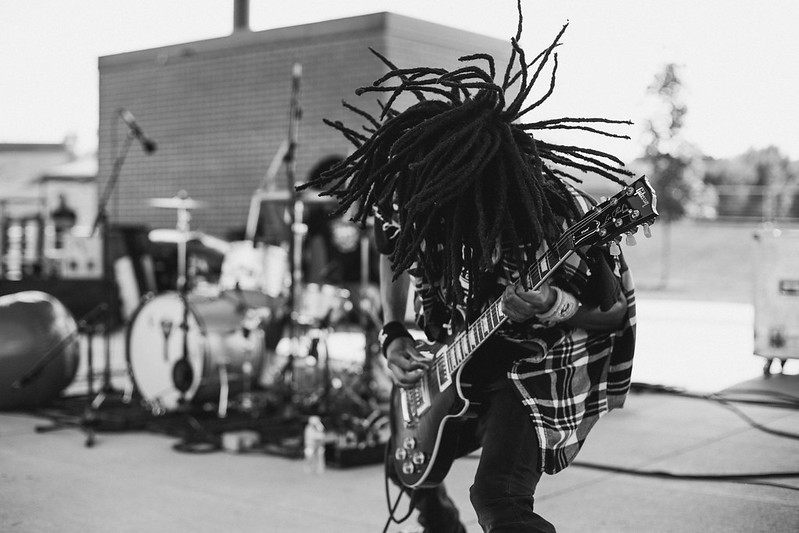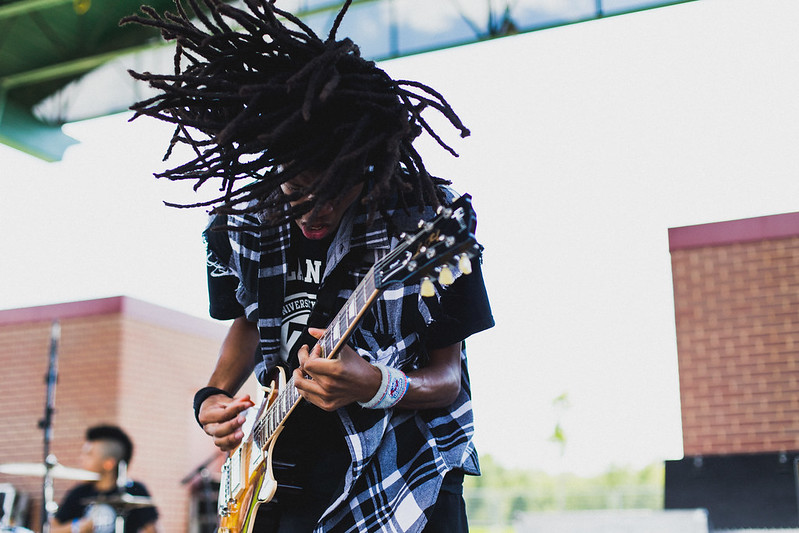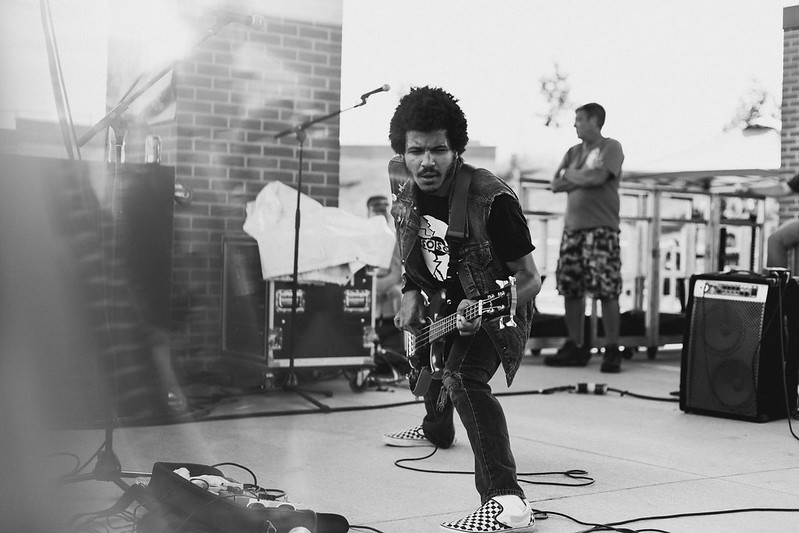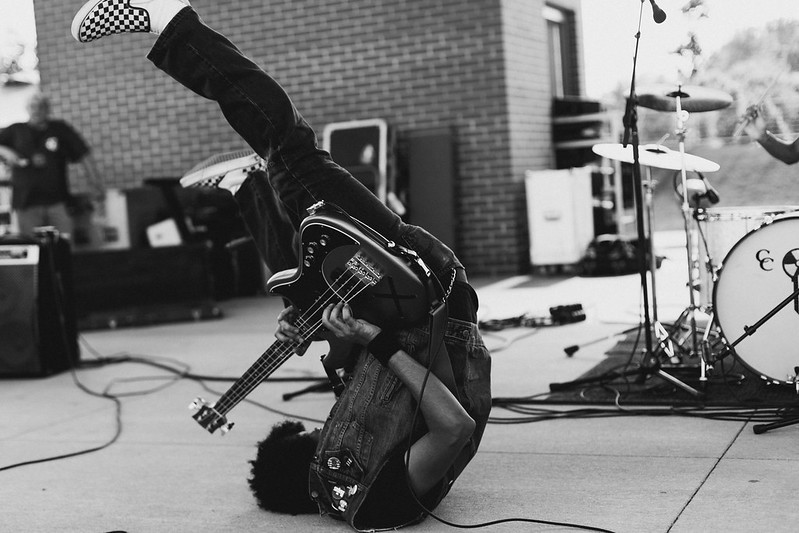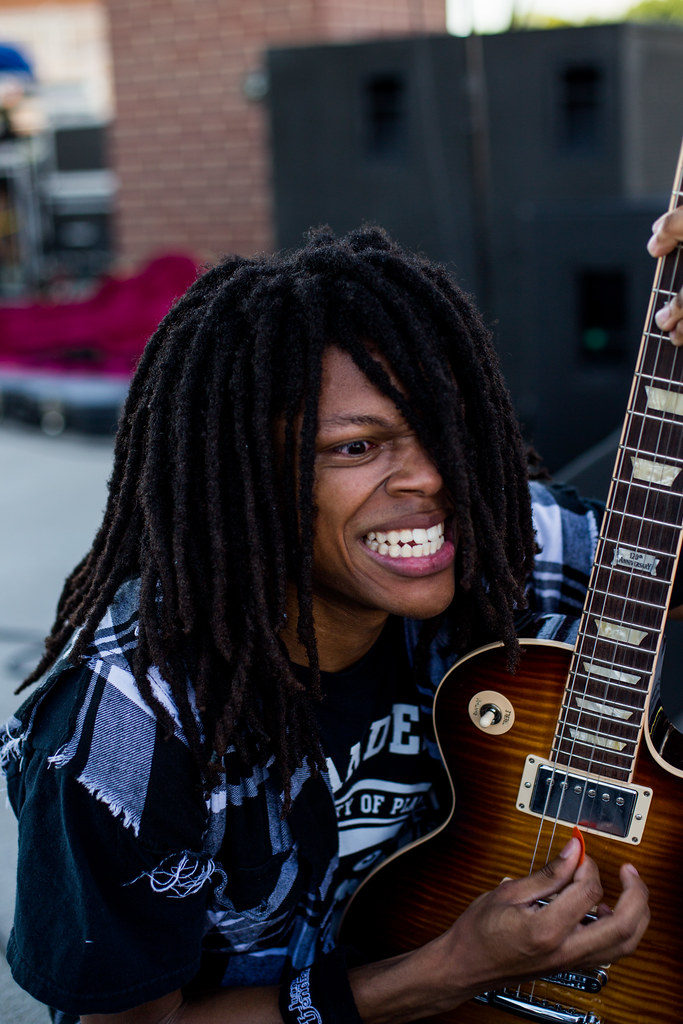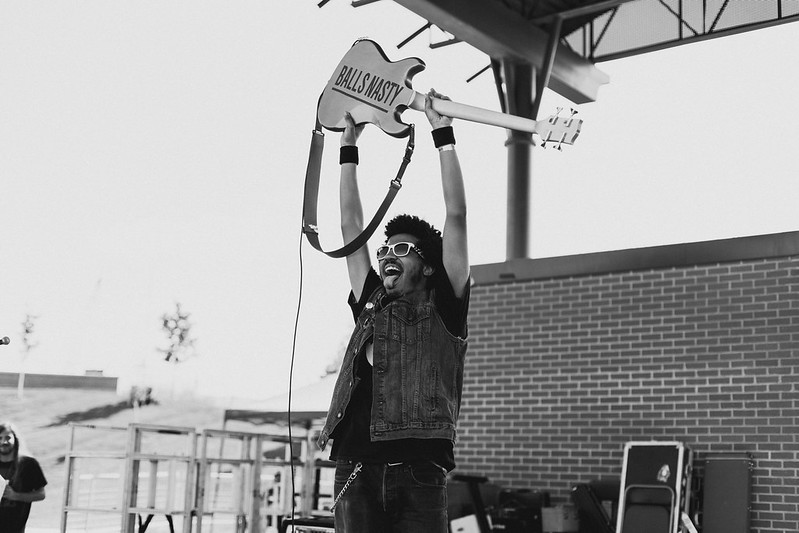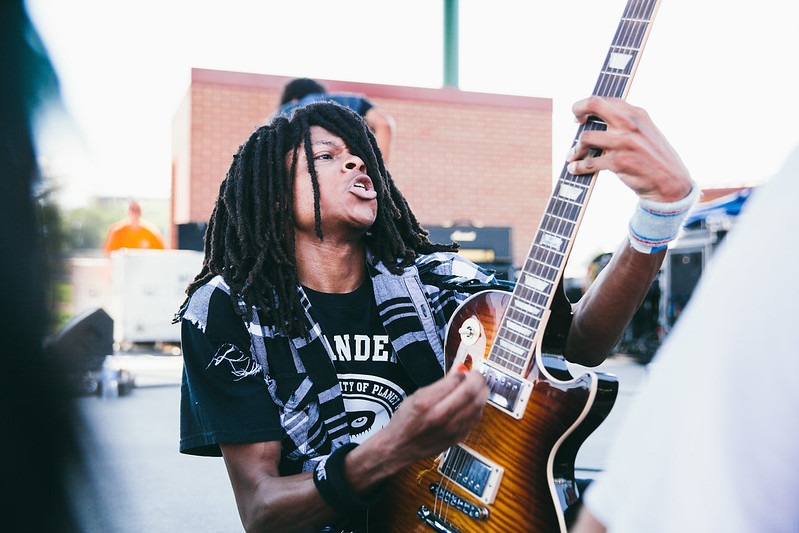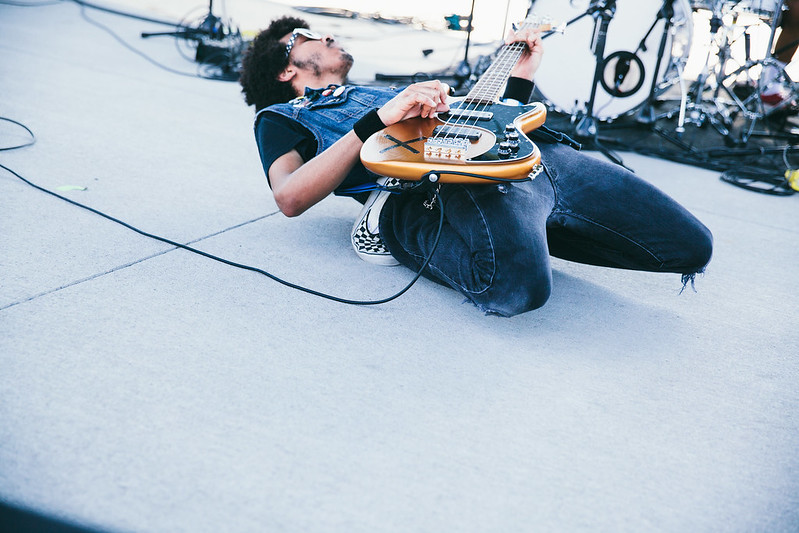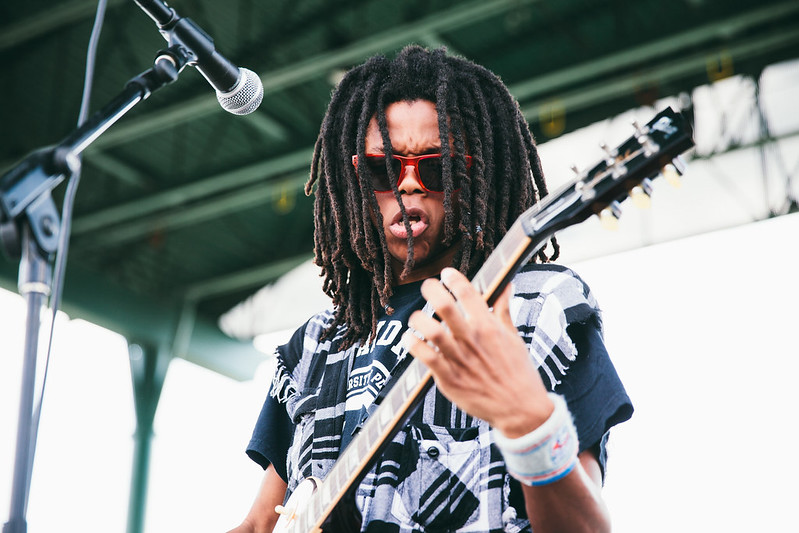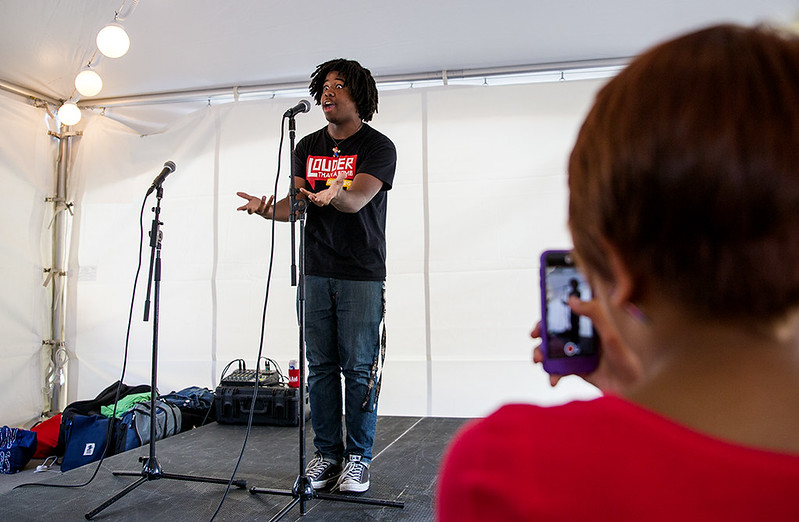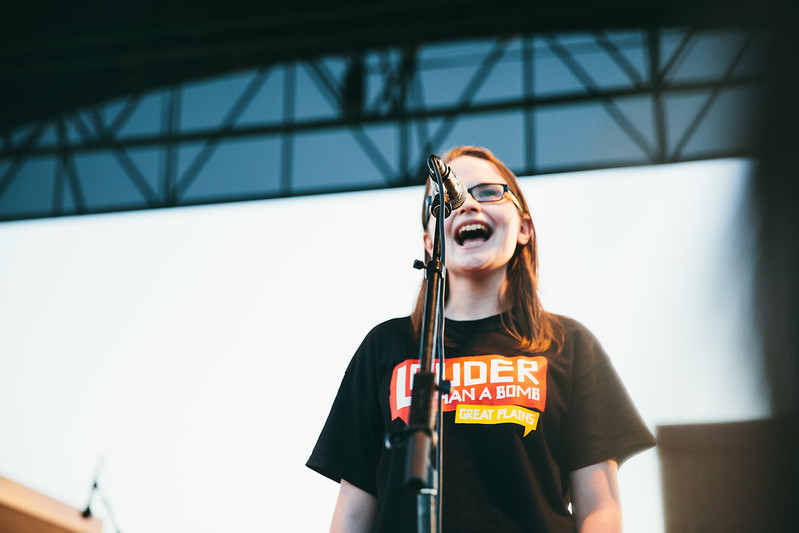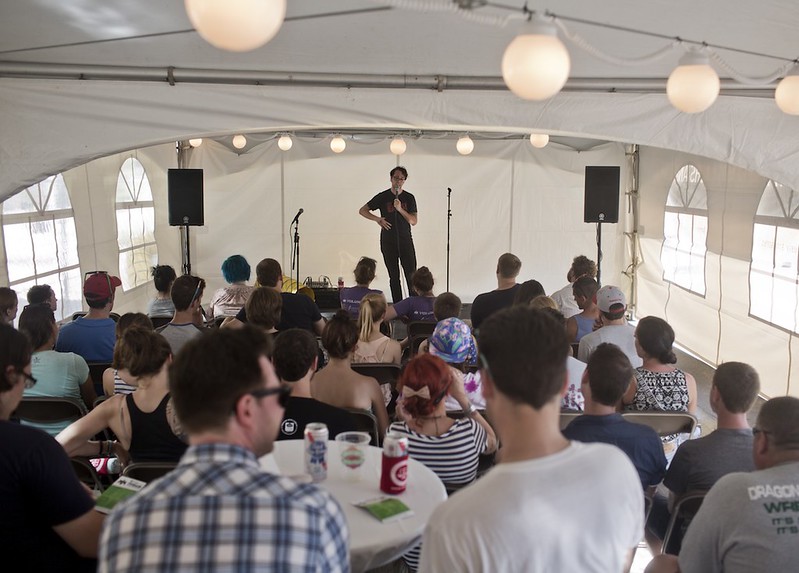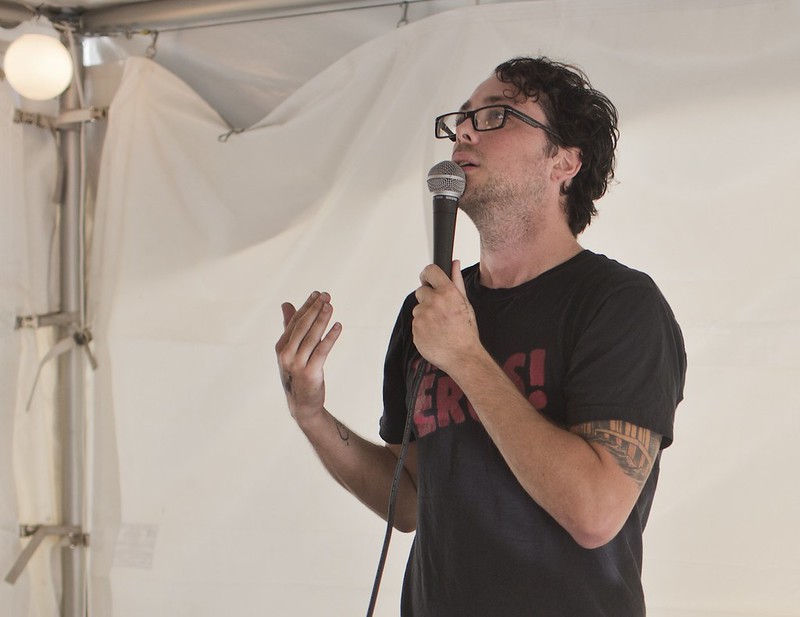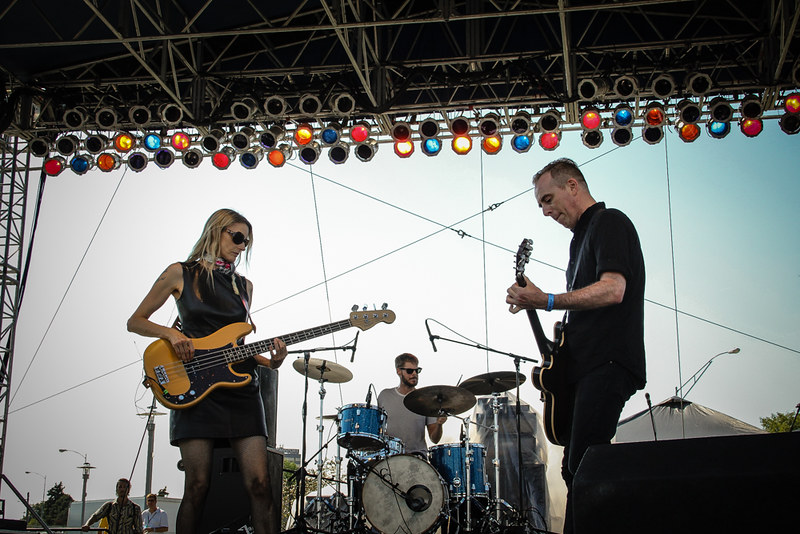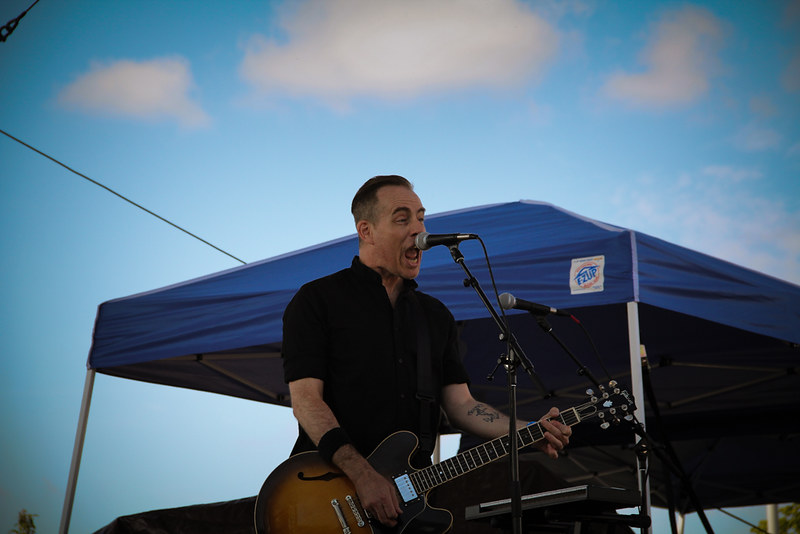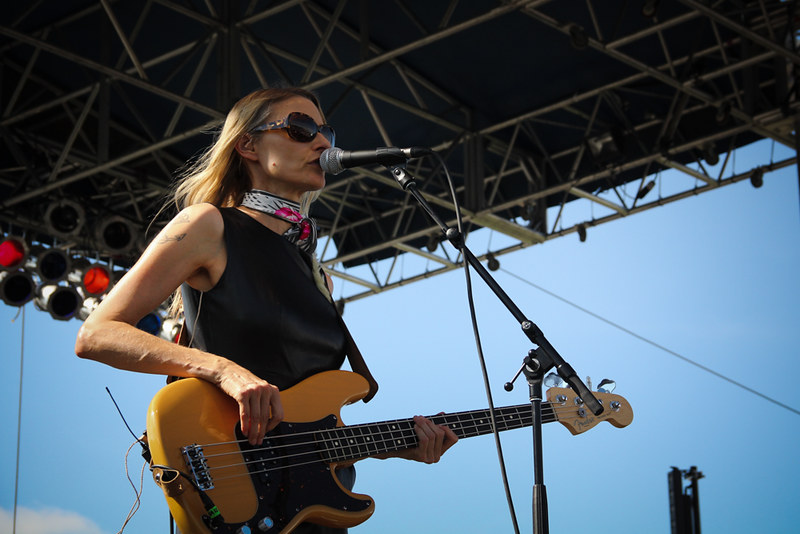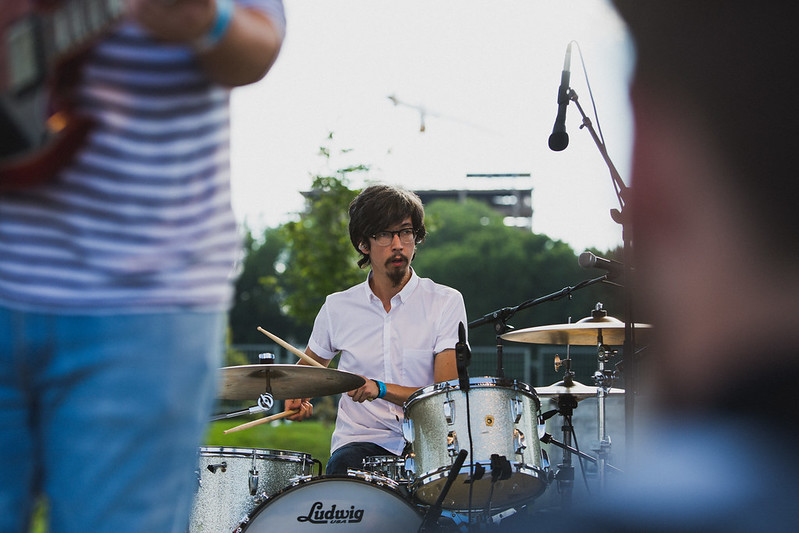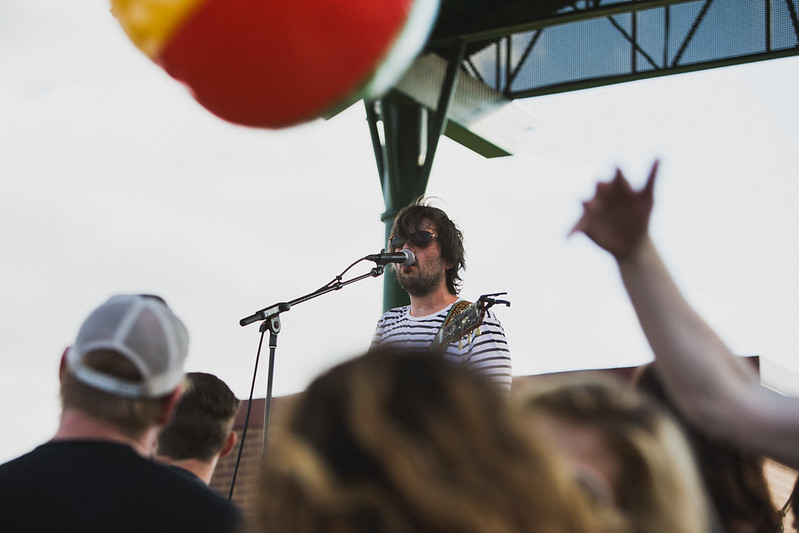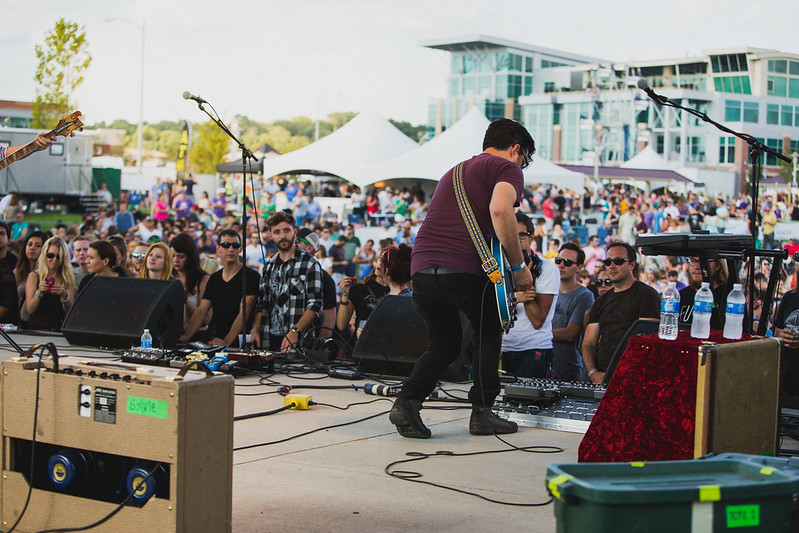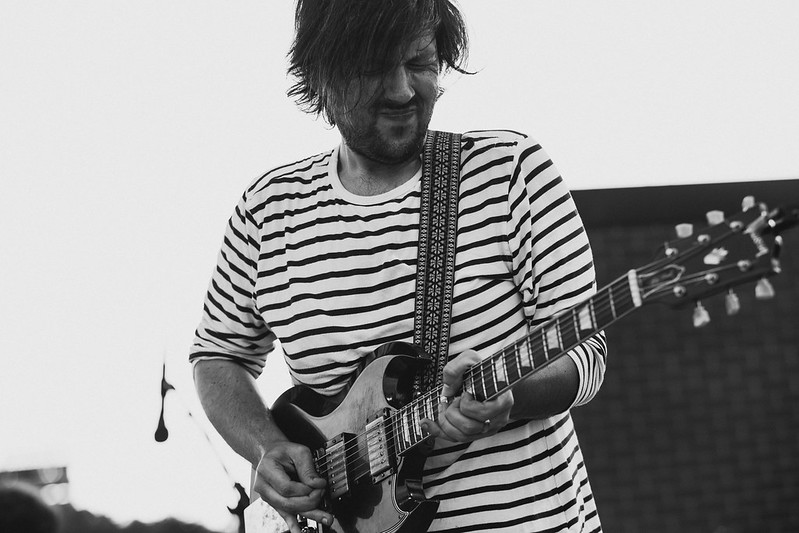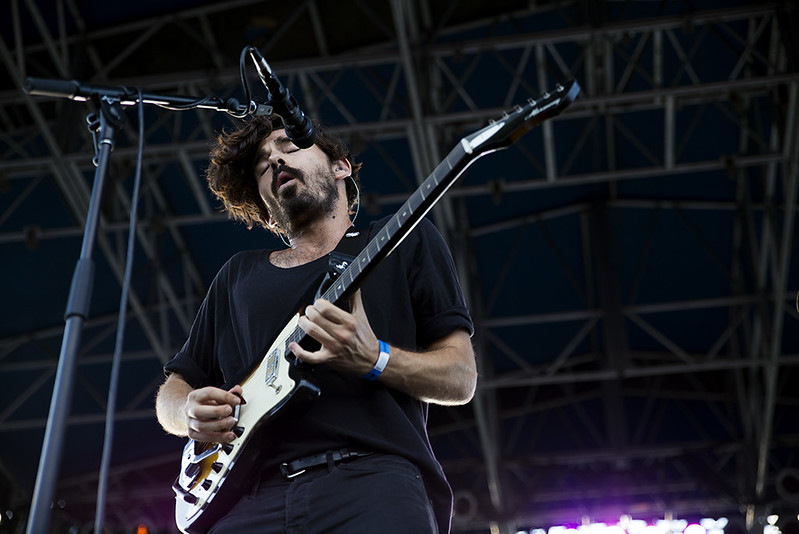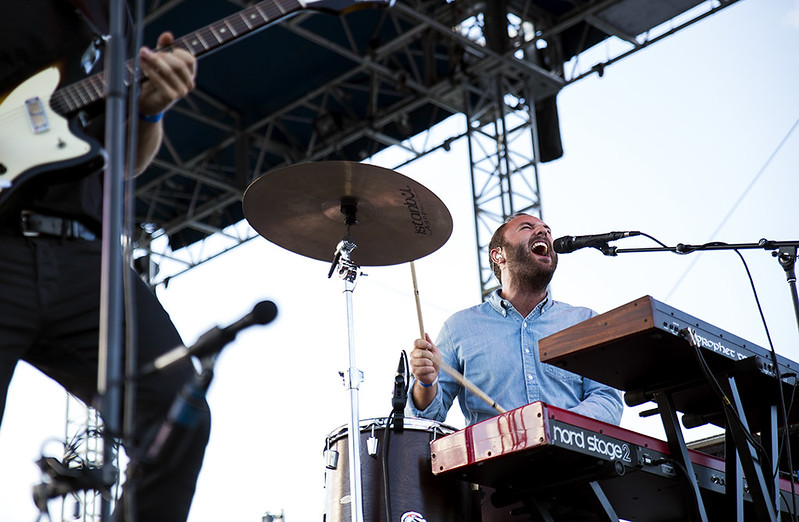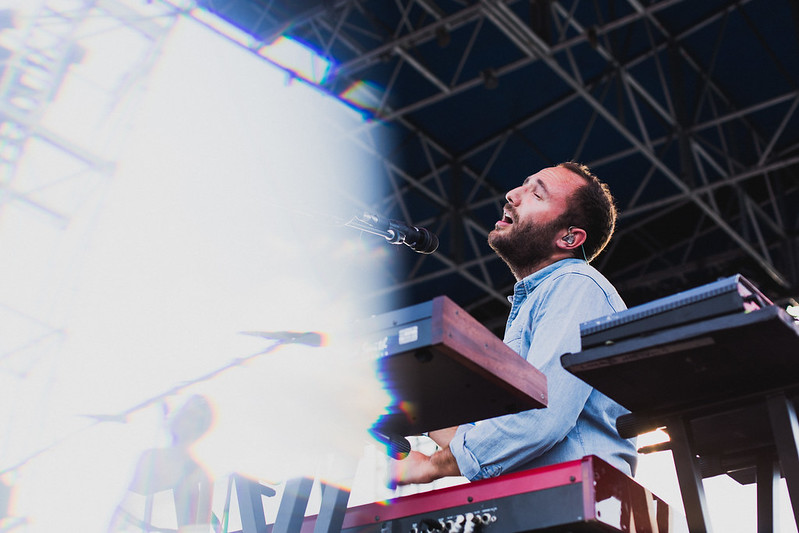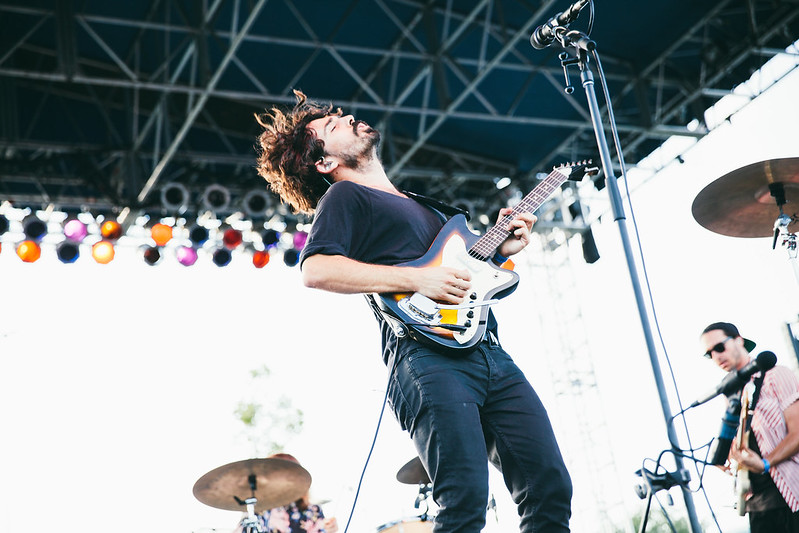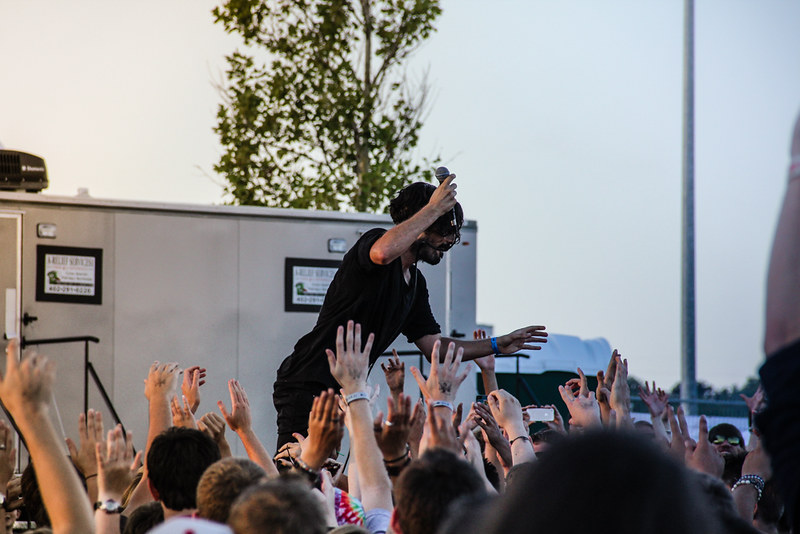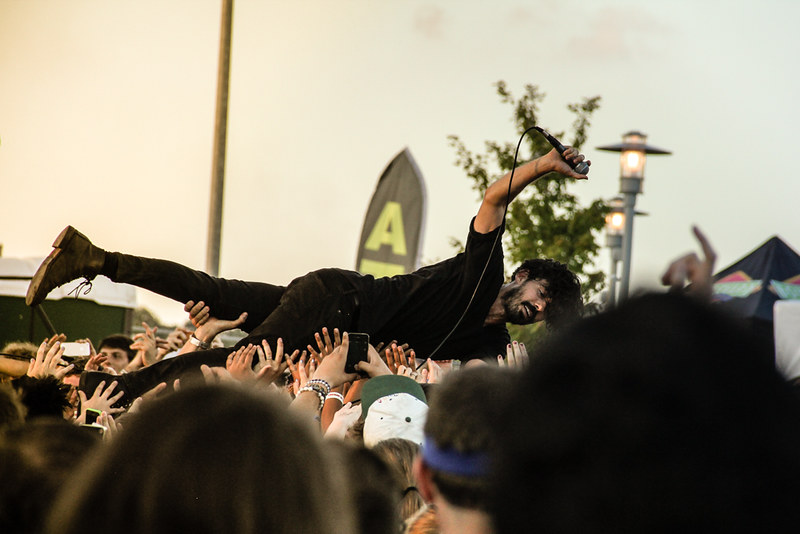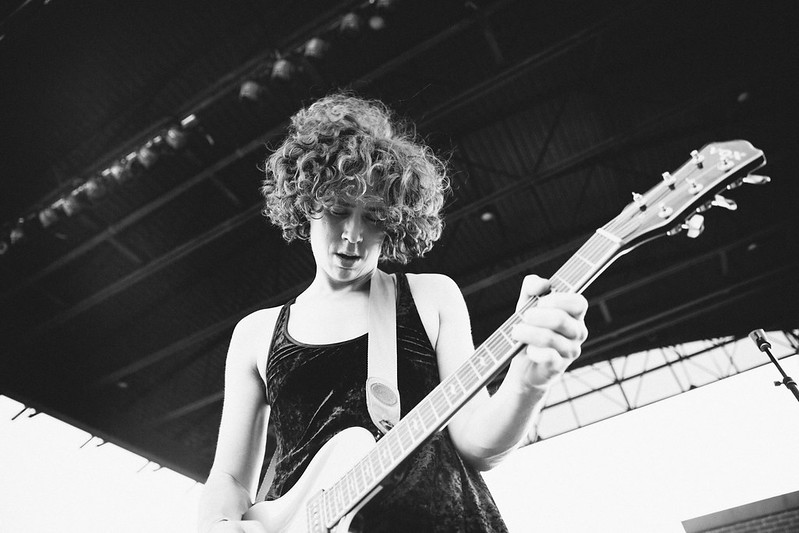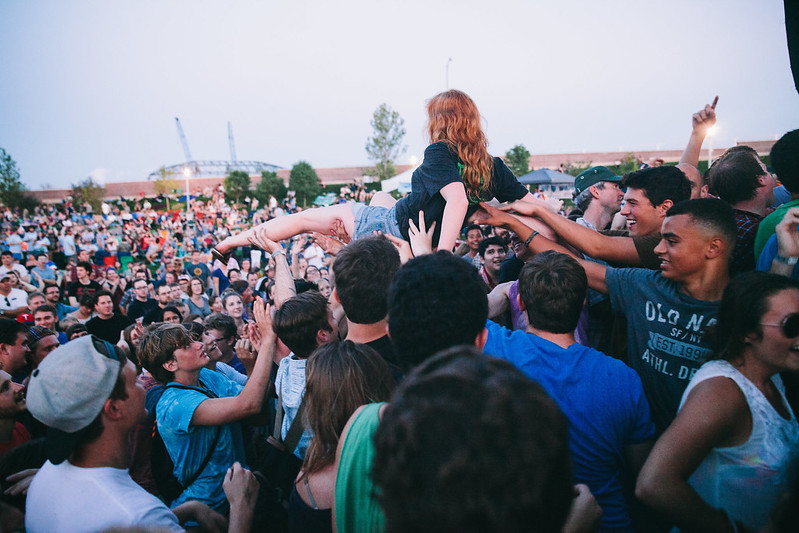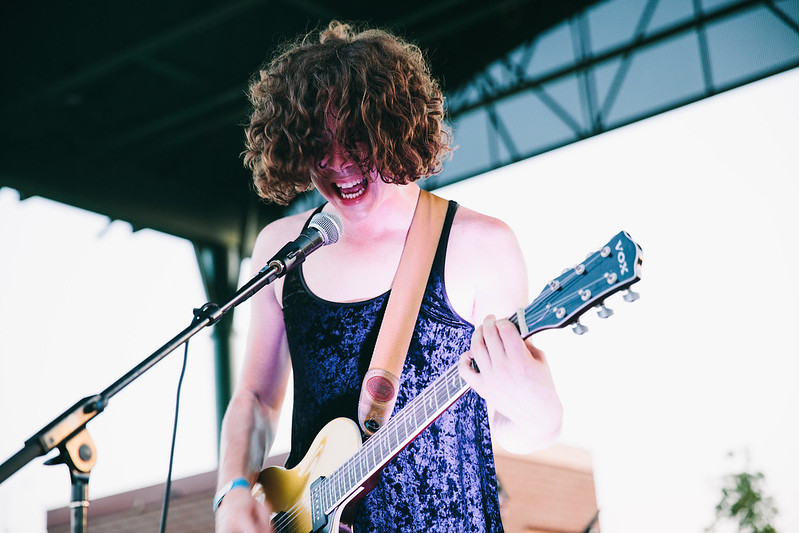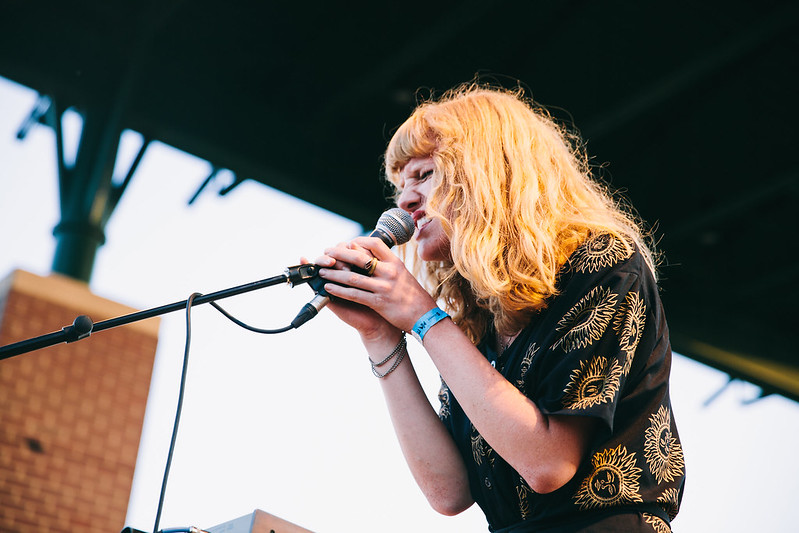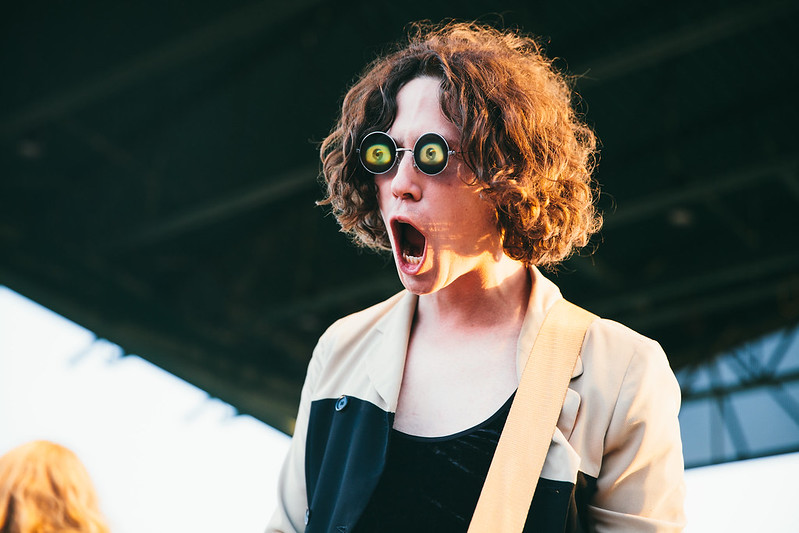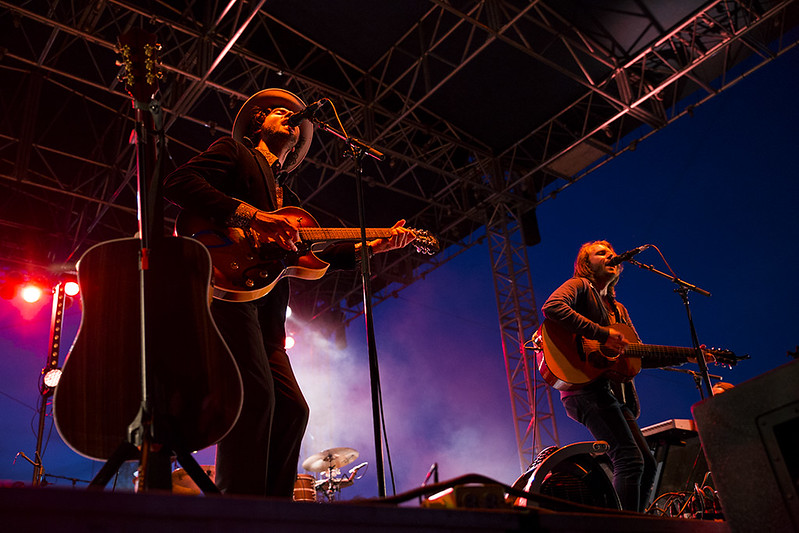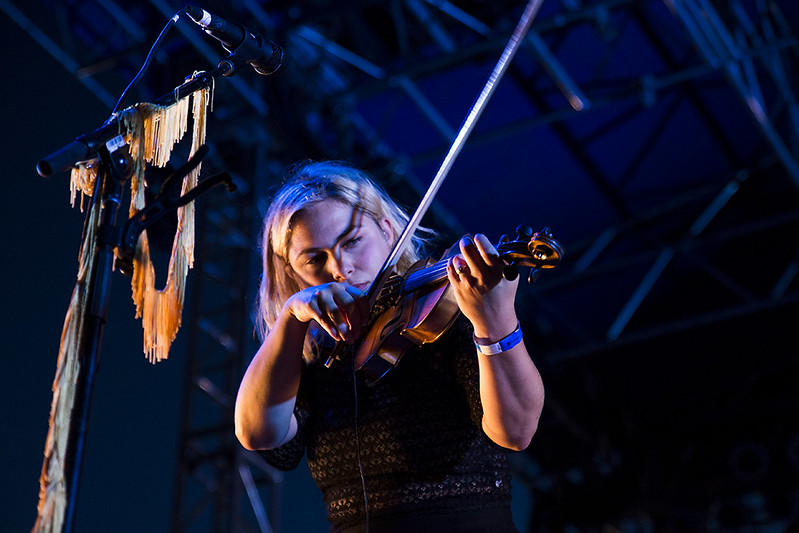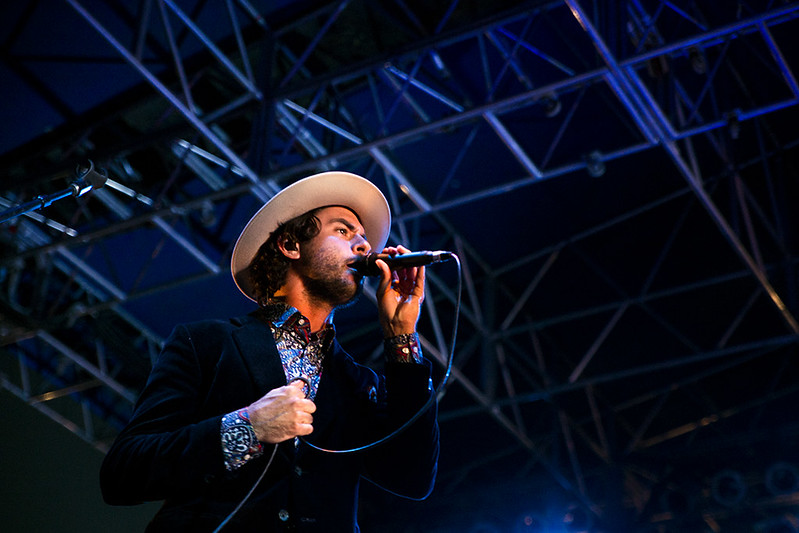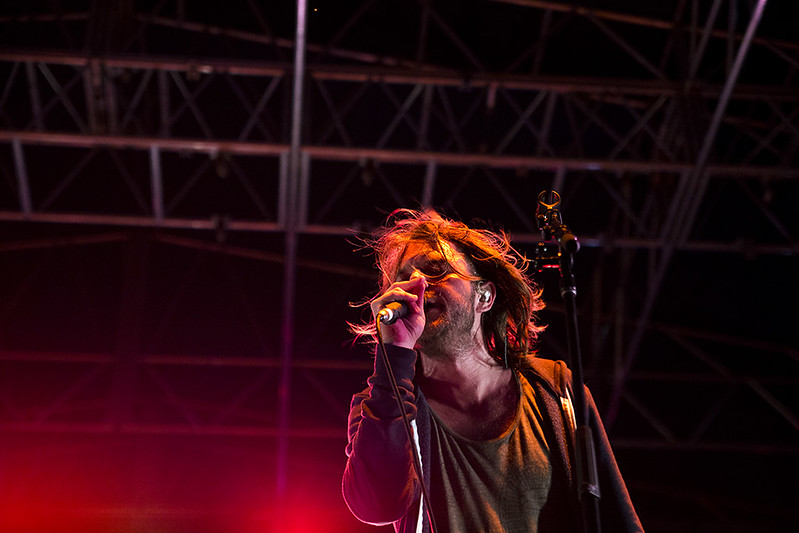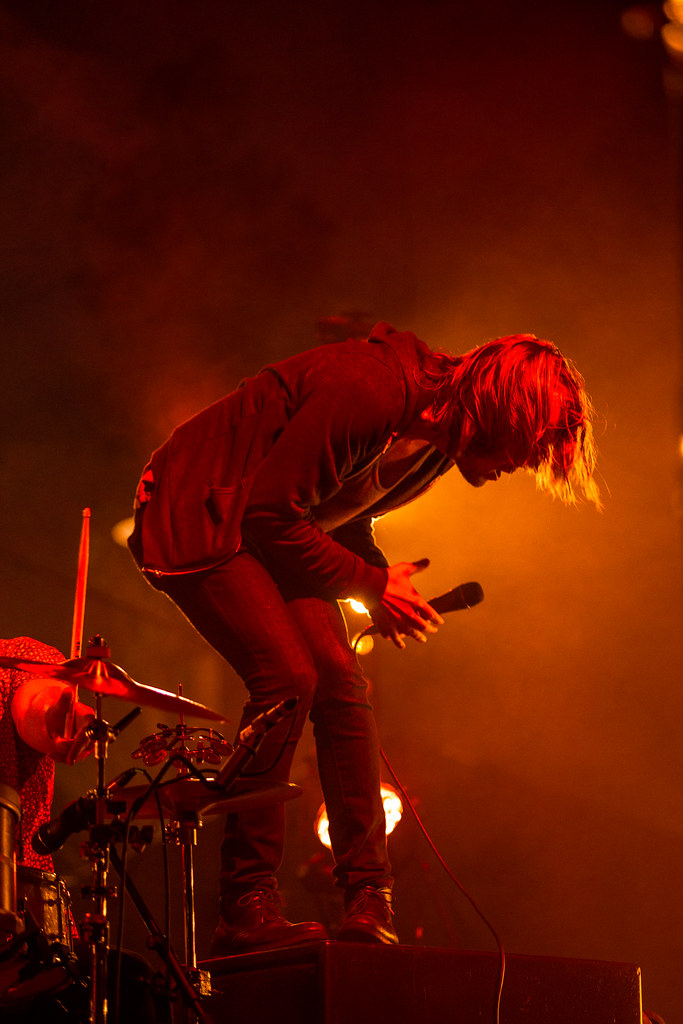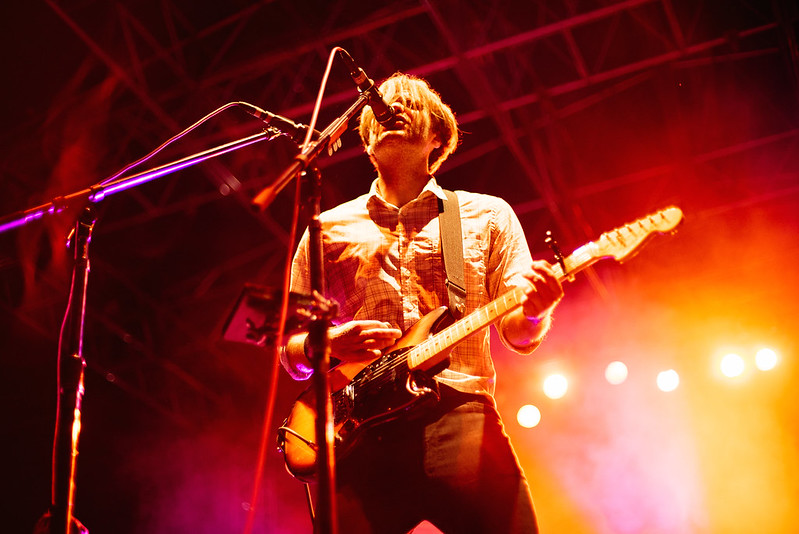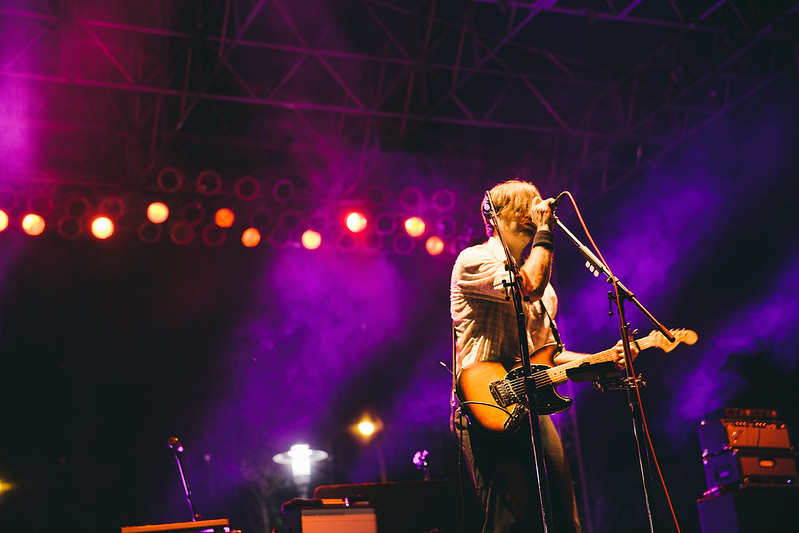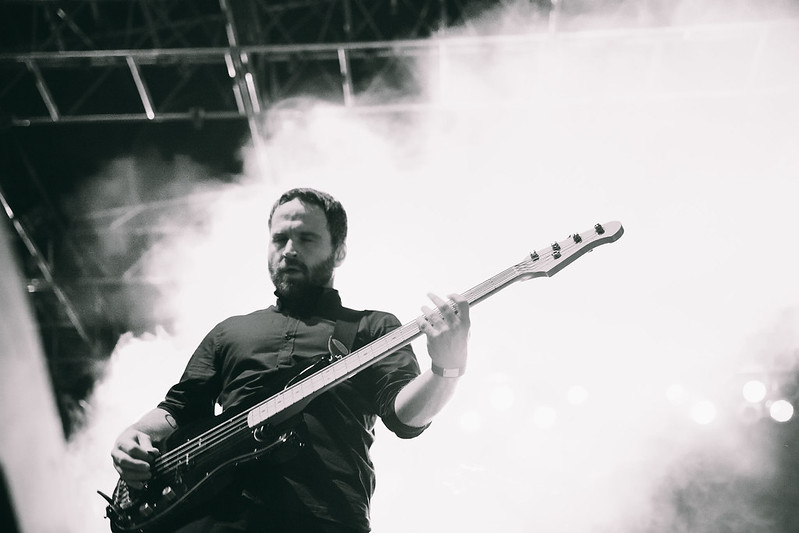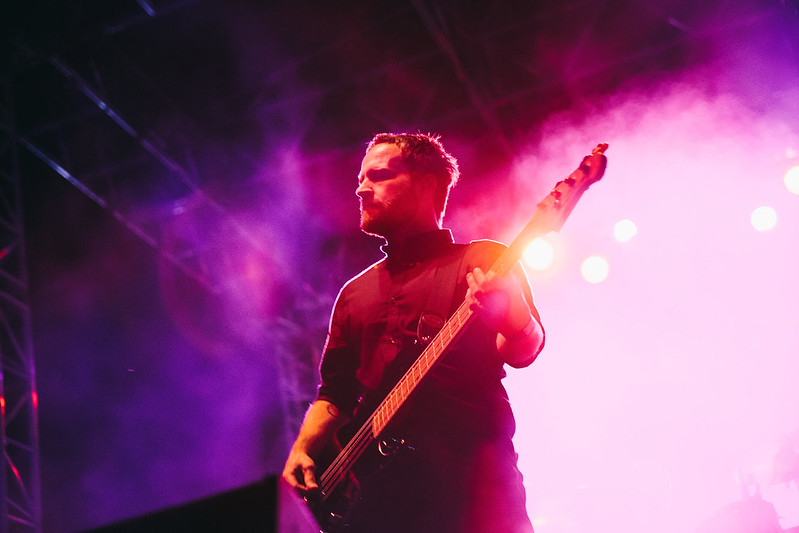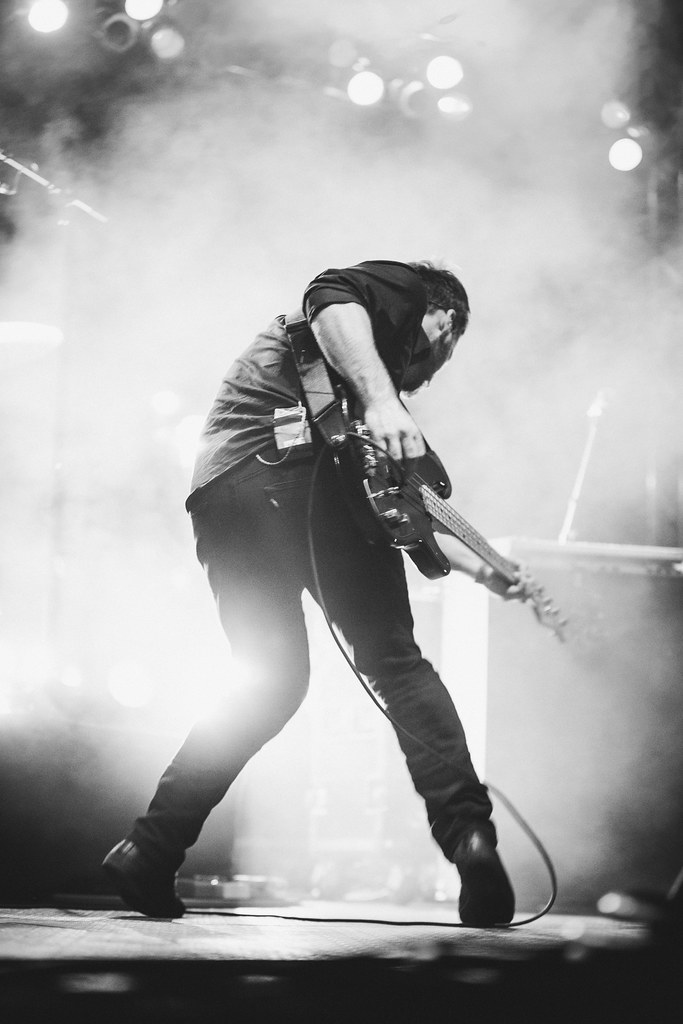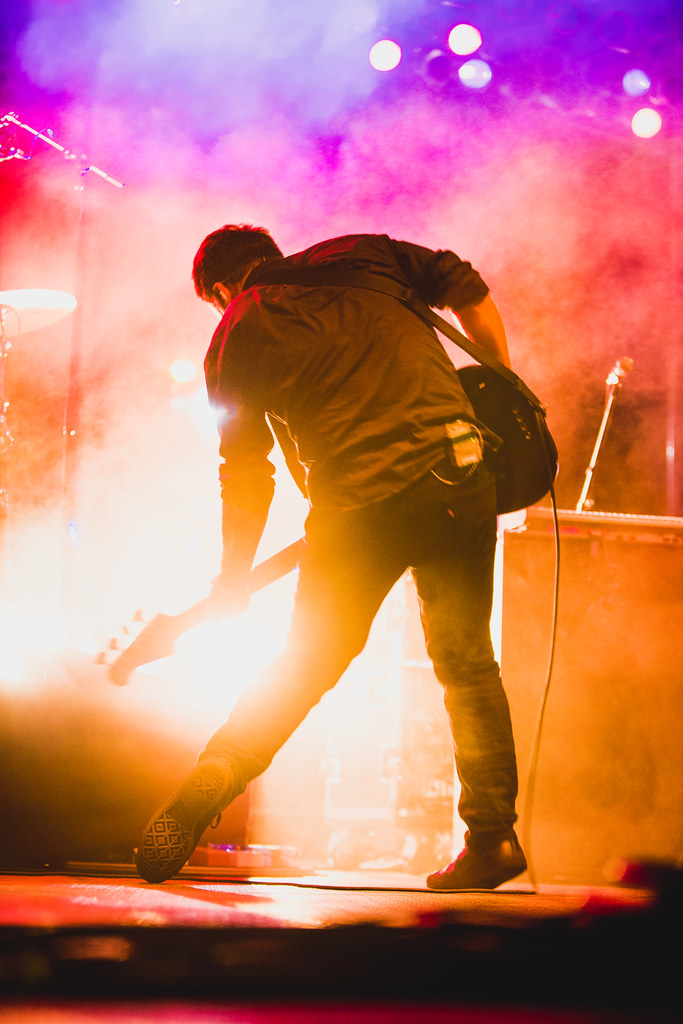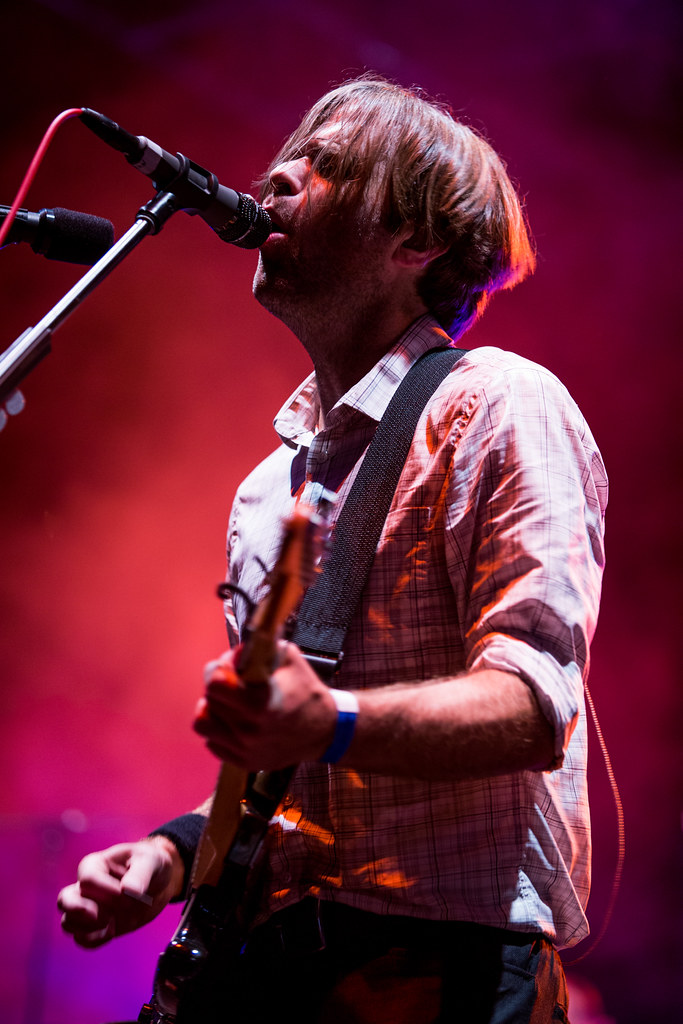Often, we measure the success of a music festival by its atmosphere. Are people relaxed? Are they pushing to the front? Are they applauding stage banter? Do they hoot and holler as loudly for the local acts as the national heavyweights?
Here’s another marker: What do the touring acts do once their sets are over? Scamper off to their trailers? Peek around from backstage like a cellphone photo with a fan is a cyanide pill?
Not so at Maha on Saturday.
“After this, you’ll find us out there, listening to Death Cab … and crying,” said Doomtree after the Minneapolis rap group’s early afternoon set. They’d already endeared themselves to the crowd by dancing as hard as any fan. Then, they made clear their intention to be of-the-people for the rest of the night.
On the same note, Josiah Johnson and Jonathan Russell of The Head and the Heart came out to the center of the closed Omaha Gives stage to greet Omahans and sing loudly along with Death Cab For Cutie.
Just a microcosm, of course, but Maha 2014 earned its stripes this way, in addition to the more than 7,000 people who turned out to head-bang near the mainstage, support the all-volunteer-run festival, relax on the Stinson Park lawn or visit organizations in the Community Village.
At the end of the day, it was the 12 performing acts that mattered. Below, find our full photo and written coverage of everyone from Omaha’s M34N STR33t to Death Cab For Cutie. Thanks, Maha, and see you again next year.
Domestica
Opening a music festival can’t be easy.
You might find yourself on the opposite end of a bill that closes with, say, Death Cab for Cutie. You’re intuitively expected to set a tone for the day when less than a fifth of the whole audience has made it out of their house. You’re playing 10 hours earlier in the day than you normally would.
Maybe your three-piece band’s spare set-up, clustered toward the front-center of the Weitz mainstage, is dwarfed by huge stacks of speakers suspended to either side of the stage and the later acts’ drum stage behind.
Such was the case for the opening band at Maha Music Festival on Saturday.
But that opening band is Domestica, fronted by Heidi Ore and Jon Taylor, who, between their first band Mercy Rule and now, have been playing aggressive rock together for more than 20 years. Maybe the opening act feels like they have something to prove. Domestica certainly does not, though they played like the scrappy underdog.
That’s to our benefit.
They sped through a 30-minute set given strict time constraints (“no time to chat,” Taylor said), but it hardly matters for a band that’s one setting is fast-plus-loud.
Taylor rocks his body back and forth so aggressively it seems like he might fall, playing with his guitar slung to his knees like a teenager who saw Def Leppard once and decided in that moment to learn guitar. Ore hits every soaring note and drummer. Paul Tisdale plays so convulsively, that during a percussionless 30 seconds in the final song, he gets up and walks away, a quick breather in the seventh inning stretch.
By all rights the trio should have been worn out: Tisdale from his un-mic’d wails and roaring count-offs; Ore from throwing her voice as far out there as she can; Taylor from the thick guitar around his neck; all three from showing more physicality than anyone should expect from a noontime opener.
But it wouldn’t have been surprising to see Domestica to play another 30 minutes (or longer) by the looks of them. If the first band of a festival sets a tone, then Domestica’s was one of hustle.
—Jacob Zlomke
photos by JP Davis
Matt Whipkey
There must be a word, in our language or another, that describes what it is to feel nostalgia for a moment that hangs right in front of you — to long for the ideal summer day in the midst of an ideal summer day.
If there is such a word, Matt Whipkey might be familiar with it. On the Omaha Gives stage, on a gorgeous early afternoon, Whipkey played in a guitar-dominated classic rock sound. He sounds the way Sandlot’s Independence Day scene feels. And half the set comes from his 2013 album Penny Park, whose narrative could well take place at the pool that employs Wendy Peffercorn.
Five years from now when we look back on Maha 2014 and time has slowly corroded the sun that wouldn’t set (and the skin it burned) from our memories, we’ll remember sitting on Stinson Park’s lawn in the late summer with friends, food and music, nursing a casual three-beer buzz. “What a perfect day,” we’ll think.
And maybe Whipkey’s “Waterslide,” which opens both Penny Park and his Maha set, will be playing somewhere around the memory. In that moment, future-we will share the sentiment Whipkey cultivates through most of his recent solo work.
On a billing beside Domestica, who’ve basically been at it for over 20 years, Death Cab for Cutie, who have been releasing albums for nearly 20 years and The Both, featuring Ted Leo (25 years) and Aimee Mann (21 years), Whipkey somehow feels the most like a nostalgia act, the one in the lineup for the gift of harkening back to a different era of music.
Nevermind the fact that Penny Park is barely a year old.
And Whipkey, at least on Saturday, seems comfortable in that role. He’s ever the showman, in black pants, black shirt and cream blazer (until the sun proves too much for the extra layer), playing his bombastic, popping guitar riffs, or pulling the microphone from the stand and practically pleading into it.
Maybe he’s pleading to some higher power get back to summer 1989, when Penny Park takes place. But if you laid back in the grass and closed your eyes you might have trouble remembering any particular time more fondly than the present moment.
—Jacob Zlomke
photos by JP Davis
Snot (from the 2014 Omaha Girls Rock camp)
photos by Shelby Wolfe
Twinsmith
In what was to be a daylong staple, beach balls were abundant during Twinsmith’s Maha set. They made for a fitting audience prop as the band’s beachy rock tunes and boldly printed button-downs exclaimed summer.
The Omaha band’s first Maha set drew in a youngish, fairly large crowd — split between those dancing near the stage and onlookers sprawled out on the green space — for their midday performance. After the Omaha Girls Rock band Snot warmed the stage, the Twinsmith quartet of Jordan Smith, Matt Regner, Bill Sharp and Oliver Morgan played through a setlist mixed with tracks from their self-titled album and newer, unreleased songs.
The breezy set was prime as rising temperatures pushed the day from hot, toward sweltering. As vocalist Smith yelped his way through “Easy Thoughts,” drummer Morgan played the cymbals with smooth precision. The quick beats progressed, encouraging the crowd to groove and clap along.
The set was filled with the upbeat guitar pop songs local audiences have come to expect from the group. Standouts, such as “Summer Jam,” elicited a few uninitiated onlookers to wonder aloud if Twinsmith was from Omaha or not. Their sound certainly is en vogue nationally, and the band is slated to play two larger Midwestern festivals in the early autumn.
Toward the end of Twinsmith’s set, Smith eventually ditched his mic stand to dance around alongside the audience: stomping and boogie-ing in the summer heat.
—Gabriella Martinez-Garro
photos by Shelby Wolfe
M34N STR33T
Before M34N STR33T even took the stage, their set generated buzz.
What were those picket signs? The ones lining the front of the Omaha Gives stage all early afternoon, and reading things like “R34d a book,” “Pizza is the truth,” and “RIP Jay Adams.”
After a slam poetry reading from Louder Than A Bomb, rapper Conchance and beatmakers Haunted Gauntlet and DJ Really Real took the stage, bringing with them a large drawing cutout of a cyclops-esque Scottie Pippen.
The trio’s set was booming with beats borrowing retro doo-wop samples and Conchance’s quick, effortless rhymes.
In what turned out to be a smart branding move, the group announced they would leave their picket signs with the Maha crowd after the set was over. These signs were toted around by festival-goers for the rest of the day, carrying M34M STR33T’s both nonsensical and positive messages.
The hip-hop trio played songs from their new debut album, Mutants of Omaha, including “Nite Owl,” which featured no shortage of soul-inspired sounds. Download that album for free here.
The crowd cheered as Conchance gave advice on self-dignifying ethics. The rapper told the crowd to respect its elders, if they respect you. He also told the audience to respect the police, but not to show that respect to anyone who does not respect you back, a possible allusion to the recent controversial events in Ferguson, Missouri.
The group ended with the humorously titled “Scottie Pippen’s Right Knee.” A song with lyrics fitting for the set’s positive statements: “Shouts out to respect, you cannot forget love. What’s good modesty? Hello to your sister integrity.”
Following the group’s set, Conchance apologized to the crowd, specifically the families at the festival, for M34N STR33T’s explicit lyrics. The rapper said the swear words in the songs are simply a part of the songs and their meanings. Understandable, seeing as how worrying about explicit lyrics may have disrupted Conchance’s otherwise relentless flow.
—Gabriella Martinez-Garro
photos by Shelby Wolfe
photo by Chris Dinan
Doomtree
To enjoy Doomtree is to be comfortable with the inherent limitations of any supergroup.
In a 45-minute set, you probably only spent seven minutes with the spits of your favorite emcee from the Minneapolis seven-piece. But the pay-off is a kind of commanding stage dominance. You can watch Michael Jordan on the Bulls for 82 games or you can watch the 1992 Dream Team. The latter has a kind of arresting Goliath complex that works really, really well in hip-hop. It’s an embarrassment of riches in a genre that loves any kind of riches, even metaphorical.
Backed by Paper Tiger and Lazerbeak dropping polyphonic piano sounds into expansive dubstep climaces, the Doomtree rappers appeared like a revolver cylinder. One emcee would be fired out, rapping furiously while the others held back and filled in the choruses as hype-people. Then, the revolver rotated clockwise, and the next member came firing out: Dessa twisting her head around like a statuesque cobra or P.O.S. yelling straight from his gut.
Doomtree’s chosen ethos, as an independent group and label, is one of absolute DIY grit. Cecil Otter’s button-down shirt was ripped, exposing one of his shoulder blades. Mike Mictlan admitted he didn’t smell too good, probably because the group drove all night to Maha in what must have been a cramped, but high-minded van.
Overall, the flow title belt probably belonged to Sims on this day. In his song “Uh Huh,” he demonstrated incredibly deft ability in phrasings and accents, front, middle and backloading phrases in a way that was more about dexterity than pure speed.
Doomtree’s set on Weitz Stage was the first of the day to feel like a national music festival, and not just because Doomtree was the first touring act. By this point, a few hundred people gathered. When P.O.S. asked who hadn’t heard of the group before, many of the people who raised their hands and whooped the loudest had been dancing the hardest just moments before.
Before the battle rap anthem “Fuck Your Stuff,” Doomtree began taking Fireball swigs, as if they needed more pyro in their bellies.
—Chance Solem-Pfeifer
photos by JP Davis
Radkey
It’s unoriginal to single out Radkey for its age, but on Saturday, it showed itself at every turn. Limited in scope and boundless in energy, the 18-to-21-year-old brothers made their presence known.
It was in the vigor and frightful withholding in which they’d count off a song, suspending audience anticipation. They’d move past four beats, past eight beats, all the way to 12 with Solomon Radke’s drumsticks hitting each other until it became a moment of alien potential energy: the moment where you’re not sure if the M-80 is a dud or the loudest you’ve ever heard.
But then Radkey proved through a dozen songs to be explosive, careening out of the gates over and over behind four-beat, three-chord punk guitar shredding.
In this way, every song was the same, the way every time you hit a steel door with a battering ram is the same. So despite the vast difference in experience, Radkey was the all-important 2014 heir to last year’s Bob Mould seat: the act who’s there for volume and pure catharsis.
Physically, their festival readiness was second to none. There was a youthful enthusiasm to way they slid around on chaffed knees and mugged the crowd that made you feel they’d do the same while privately rehearsing.
—Chance Solem-Pfeifer
photos by JP Davis
photos by Bridget McQuillan
Louder Than A Bomb (Slam Poetry)
photo by Shelby Wolfe
photo by Bridget McQuillan
OK Party Comedy
photos of Cody Wayne Hurd by Nickolai Hammar
The Both
The purple Maha flag adorning a crane did not wave from behind the stage.
Ted Leo had cloaked himself in a black tee and black tight pants. Aimee Mann covered her stiff frame in what appeared to be dark leather and a scarf wrapped around her neck. Perfect wardrobe for the windless, midday heat of Omaha in August.
“I know you must be severely sunburned,” Mann confessed, as the backs of her knees reddeningly attested, and may soon remind with a fishnet-stocking tan.
Through the swelter, drummer Matt Mayhall converted “The Both” into a misnomer as he dutifully backed the duo through a 13-song set. Punctuated by a triumvirate of tunes carrying solo and previous-band banners — Mann’s “Goodbye Caroline,” Leo’s “Bottled in Cork” and ’Til Tuesday’s “Voices Carry” — Mann and Leo filled their first 40 minutes with selections from their self-titled album released this spring. Songs like in-your-head-the-next-morning “Milwaukee” and opener “The Gambler.”
The latter finds Leo singing the bulk of lyrics navigating Mann’s home territory in which lovers are almost always lousy. His voice buzzes with a thinner timbre than Mann’s burning-rubble smoke, and often, Leo will sing the higher half of harmonies.
But the beauty of The Both lives in subtleties. “Sometimes I feel like we’re not the best on the festival mic,” Leo said, a nod to the popular dance craze sweeping the crowd: the slight head bob. As part of banter that also plodded through The Hobbit and “tech tips for Ted,” Leo invoked Paul Stanley (Kiss’ guitarist), encouraging the crowd to sing because the cool people next to us will be.
And while our heartbeats hovered no more than 10 beats per minute above resting, Leo’s guitar skittered, expressively manic across interludes. Perhaps this centerpiece of the show was fed in part by Modern Love, the nascent vegetarian restaurant next to O’Leaver’s, where Leo enjoyed dinner the night before.
In Leo’s words, “What’s that? You weren’t planning on going to Omaha? Well, plan on it.” Thanks to The Both for stopping by.
—Michael Todd
photos by Chris Dinan
The Envy Corps
“Wanna hear something sexy?” Luke Pettipoole asked the Maha crowd.
With a collective cheer, a bluesy bass pierced the air, as a drum rumbled the tempo in the background, inviting the crowd to dance. “Cmd + Q” pulled the crowd closer to the Omaha Gives stage with its punchy notes in the verses. The song made smooth transitions to the melodic chorus where the instruments became a deep undertone allowing the vocals to stand in the spotlight.
The Envy Corps made intensity on stage look easy beneath the 90-degree sun beams. Pettipoole poured over the bass while Brandon Darner ripped powerful notes on his electric blue guitar. The crowd stretched between both stages, attention captured, as two festival attendees wearing backward snapbacks unleashed their knee-dancing moves, swaying their arms side to side.
In last week’s interview with Hear Nebraska, lead vocalist Pettipoole said the band enjoyed playing loud, and they lived up to that statement on Saturday. Now, there were instances when the high volume was balanced by hushed moments of falsetto vocals and melodic oh’s and ah’s. But they prefered loud.
They played more upbeat songs, including “Ms. Hospital Corners” and “Make It Stop” from their most recent album It Culls You. The crowd enjoyed the songs saturated with quick tempo guitar and drums, evident by their shoulder dancing and head nodding with the punching beats.
—Hanna Guenther
photos by JP Davis
Local Natives
Fans tried to crowd surf and failed, but when Taylor Rice jumped off the stage and into the crowd, every arm rose to support him.
Local Natives returned to Omaha on Saturday after a four-year absence, and the bulk of the Maha crowd showed up right on time to meet them. Unless you arrived 45 minutes before the set began, finding a place up front was impossible. High anticipation buzzed as dedicated fans awaited live versions of their favorite songs from albums Gorilla Manor and Hummingbird. As soon as the five members of Local Natives stepped onto the stage, fists tattooed with Maha birds punched the air.
Opening with their song “Breakers,” the band elongated the instrumental introduction, creating powerful pauses, enticing the crowd before diving into the set.
As soon as the keyboard hit the familiar intro of their song “Airplanes,” hands and cameras shot up, and voices rose into a festival-sized sing-a-long. Kelcey Ayer hit the drum to his right with purpose, played the melody on the keyboard to his left, and sang the well-known lyrics without missing a beat.
But then the second-to-last song, “Who Knows Who Cares,” elevated their performance to another level. Everyone banged their heads and raised their hands in sync with the ferocious drum beats pounded out by Matt Frazier. Once Frazier broke loose on the drums, there was no going back. The vocals crescendoed into yelling, as vocalist/guitarist Taylor Rice whipped his head back and forth over the notes he ripped across the guitar.
“Sun Hands” ended the show right as the sun set behind the stage, transforming Local Natives into silhouettes. Hands clapped, feet stomped, and Rice surfed the crowd.
As he floated above the raving audience, Rice whispered the bridge, “And if I can’t feel with my sun hands, I promise not to lose her again.”
—Hanna Guenther
photos by Shelby Wolfe
photo by JP Davis
photo by Bridget McQuillan
photos by Chris Dinan
Icky Blossoms
Where beer cans were hurled in honor of Digital Leather one year ago, crowd surfers threw themselves off the stage and onto the angled arms of dance kids during Icky Blossoms’ sunset show on Saturday.
Some were reckless, with the gracefulness of a bag of potatoes, others poetic as they blew kiss prayers before jumping into the great unknown. When Nik Fackler took his turn, he performed a nearly perfect scuba-dive back roll while slicing at his guitar strings. Every one of these brave souls had a bit of help in their devilish dare-taking: a little thing called gravity.
But despite the storied slope falling away from the Omaha Gives stage at Stinson Park, a great congregation of spring-loaded festivalgoers stayed upright through beat-driven dances to aging, but virile, tracks like “Village,” “Heat Lightning” and “I Am.” Interspersed were a batch of new songs that vocalist and multi-instrumentalist Derek Pressnall said were part of a second Icky Blossoms album now fully recorded.
This new, fleet-footed fare demanded a wider vocal range for synth player and singer Sarah Bohling, whose talent also highlights the more monotonic chants of “Babes” and “Sex to the Devil.” With the house lights killed and a line of wigged, onstage lights popping greens and pinks, Icky Blossoms properly attended to the bright, crooked artistry that populates their body of work, including the younger material drifting back in time toward the Reagan administration.
As the cast outside of Fackler, Bohling and Pressnall has changed before, Saturday saw another introduction (at least for me) of a new rhythm section: bassist Graham Ulicny (also in Reptar) and drummer Ryan Menchaca (also in Skypiper). Both proved their mettle in skill and visible passion, refined no doubt through the band’s practices this summer at Omaha’s Holland Center, which opened up their performing arts center to an electro-pop outfit.
Which, we should note, is yet another reason to commend Nebraska’s music community. Mark that down as reason number 253,640,105.
—Michael Todd
photos by Bridget McQuillan
The Head and the Heart
The Head and the Heart’s Maha set felt a lot like a love letter.
Frontman Jonathan Russell constantly complimented the crowd and the festival for its block-party-like atmosphere and sense of camaraderie. The rest of the group exuded affection through bright smiles and charming band interactions.
As the Seattle-based band first appeared in soft orange light to perform “Shake,” vocalists and multi-instrumentalists Jonathan Russell, Josiah Johnson and Charity Thielen took center stage with soaring vocals and pitch-perfect harmonies that gently guided the crowd past dusk and into night.
Though Russell and Johnson took the lead on vocals for the majority of the set, Thielen’s throaty belting and overlying violin made her a standout within the six-piece group. The overall production was much louder, larger and more upbeat than the majority of the band’s studio recordings, an apparent adjustment for the festival-sized crowd.
Tracks from their newest album, Let’s Be Still, released last year, proved to be the most dance- and stomp-worthy. Conversely, the biggest sing-alongs came forth when the band played songs such as “Ghosts,” Lost In My Mind,” and “Down In the Valley,” from their debut, self-titled album.
Thielen bounced back and forth between the front of the stage and her fellow musicians, dancing, smiling and chatting in between songs. As the band played their light, pop-inspired folk music, it was hard not to share in their obvious joy.
The group’s set ended with a powerful performance of “Rivers and Roads,” including a wailing solo from Thielen and a nearly a cappella three-part harmony, punctured by a single drumbeat. The band’s united final notes hung in the humid air, signed with affection.
—Gabriella Martinez-Garro
photos by Shelby Wolfe
photo by JP Davis
Death Cab for Cutie
The choice to open its set with “I Will Possess Your Heart,” a threatening 8-minute jam full of bass undertow, told the crowd what it needed to know about Death Cab For Cutie’s headlining Maha set.
First, that song was the inaugural single from 2008’s Narrow Stairs. The set would be a kind of Death Cab “best of,” provided the song could be played with all-band cohesion and a healthy bite.
Second, for a band easily picked on for singer Ben Gibbard’s open-throated whine and the feeling of a heartbroken man reading the dictionary, they cultivated a surprising amount of intensity for more than an hour.
Yes, Jason McGerr’s drums were 50 percent louder than you might’ve guessed. Yes, Gibbard sang with surprising sharpness, never once slipping into the syllabic drones found on 17 years worth of Death Cab ballads. Mostly though, the veteran Seattle band showed itself to understand how to play like a big-draw band differently (or better, if you like) than anyone else at the festival.
While The Head and the Heart — also from Seattle and visibly adoring of Death Cab, as they sang along backstage — elongated pauses, beefed up choruses and made room of sing-a-longs, Death Cab wore an all-business expression even as Gibbard swung his sweaty apron of bangs around and bassist Nick Harmer long-stepped around stage. Instead of breaking for applause, they disguised more than half the songs with intros and outros that fed into each other.
Rather than afford the crowd any great releases of the energy they built through sped-up renditions of “Crooked Teeth,” “You Are A Tourist,” “Long Division” and “The New Year,” they just climbed endlessly. On the one hand, it was button-up. Gibbard offered a choppy “good evening,” and off they went. On the other, it showed a kind of advanced professionalism from a band that didn’t feel like making any veiled comments on its body of work, other than that they like the discography and would play as much of it, as democratically, as they could.
Guitarist/producer Chris Walla, the subject of much discussion the week leading up to Maha for announcing his departure from the band, was quiet and earnest on stage, basking in one of his final shows with the band.
When the band came out for its encore, Gibbard hustled out eager to play “Lightness,” “A Movie Script Ending” and “Marching Bands of Manhattan,” but also eager, in a way, to be done playing them. Walla, however, trotted out like he hadn’t expected an encore, one hand in his pocket and grinning sheepishly, like he was walking in late to dinner with friends who he knows he won’t see again for some time.
—Chance Solem-Pfeifer
photos by Bridget McQuillan
photos by JP Davis







